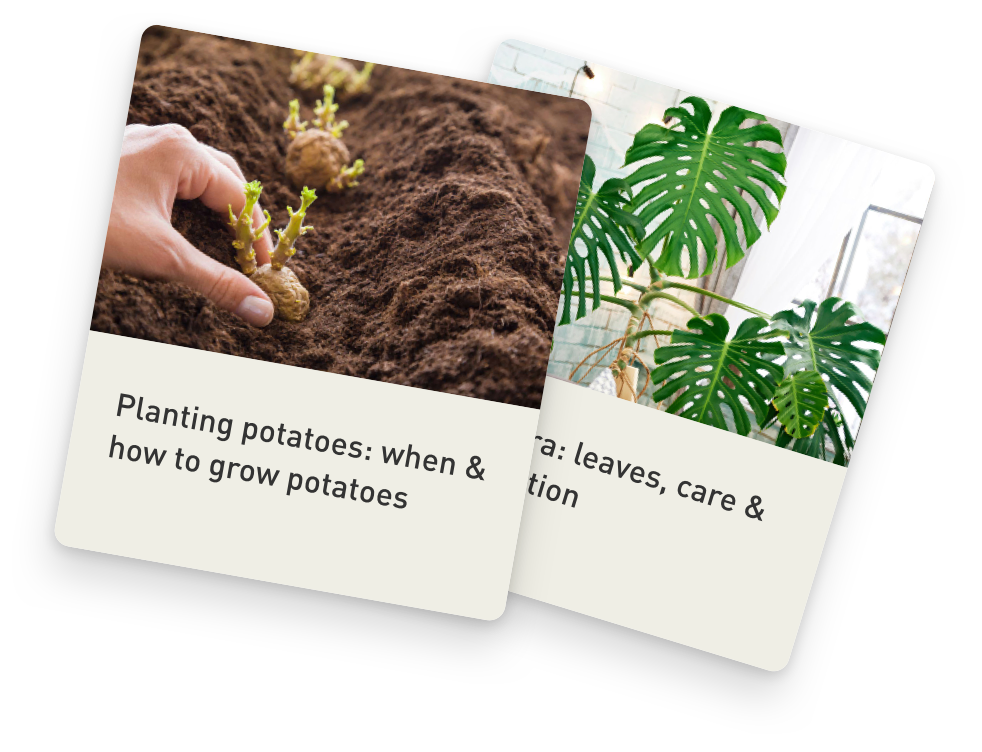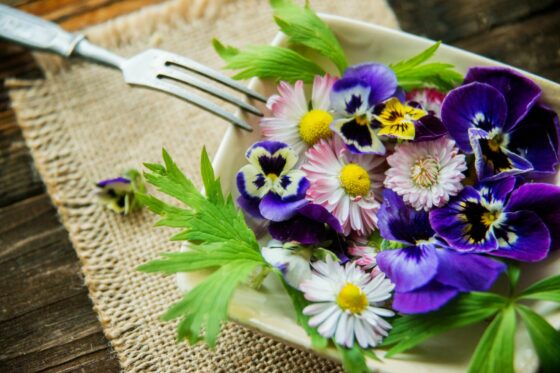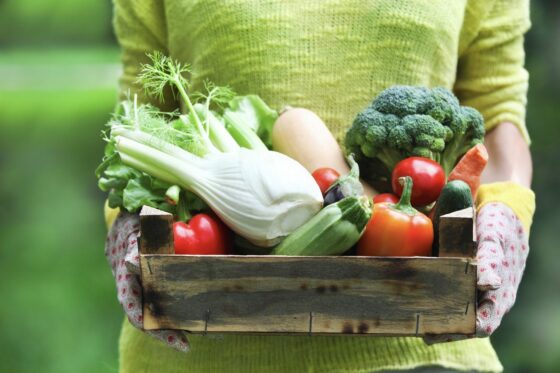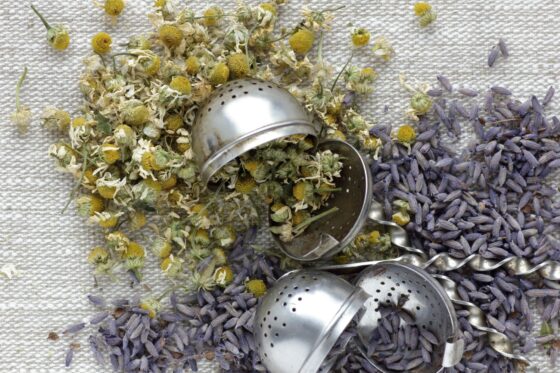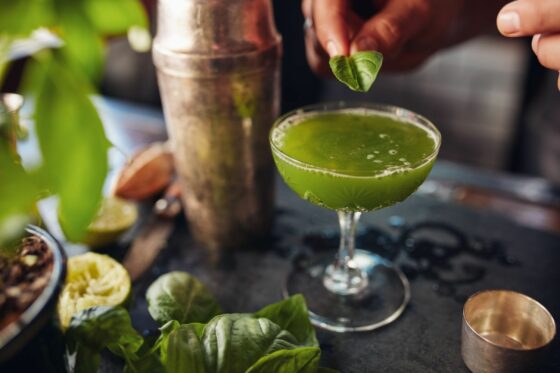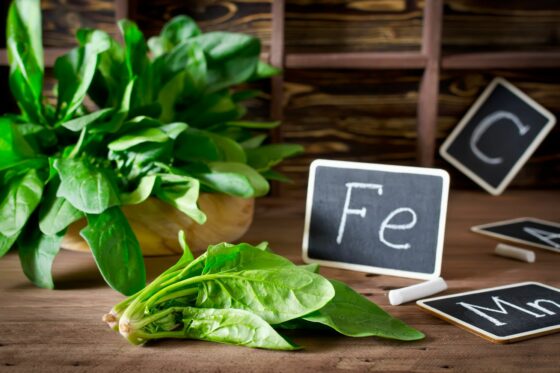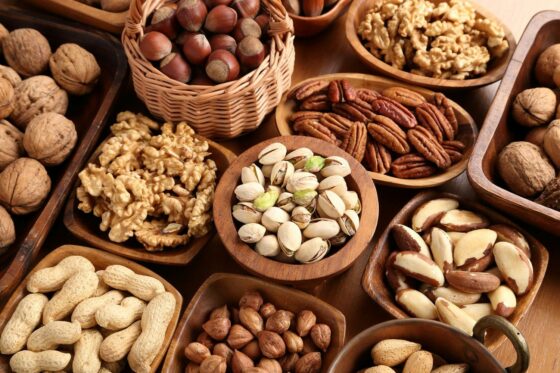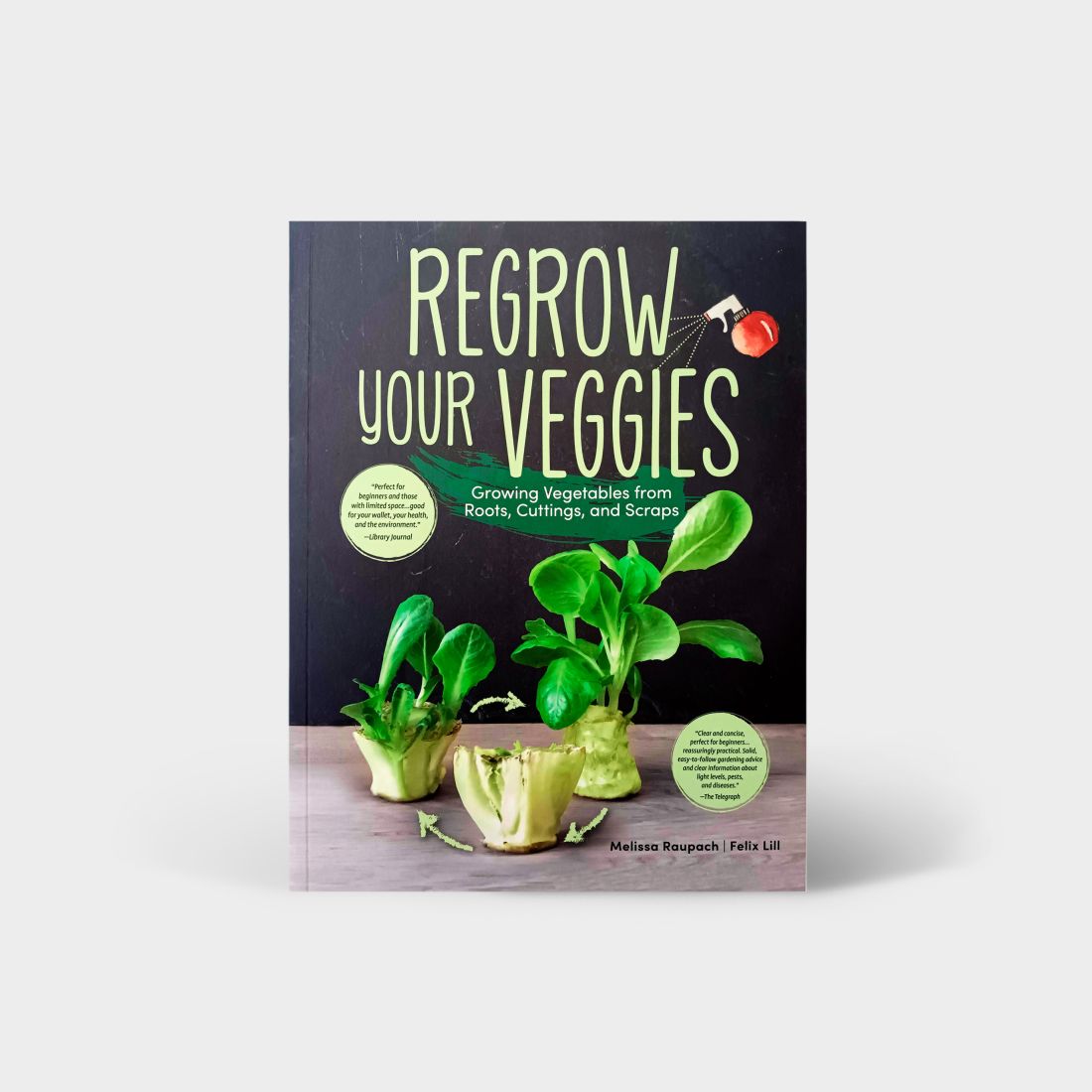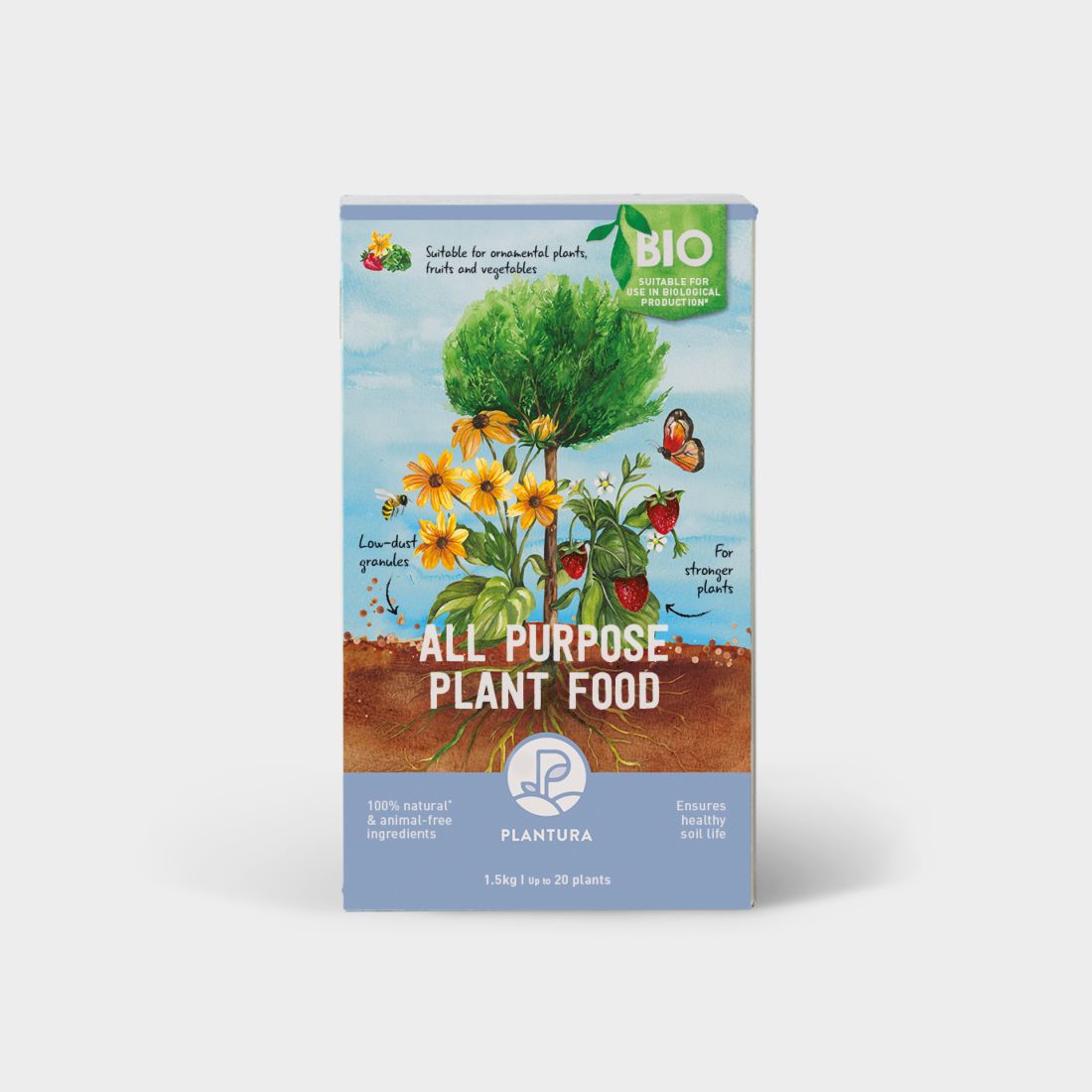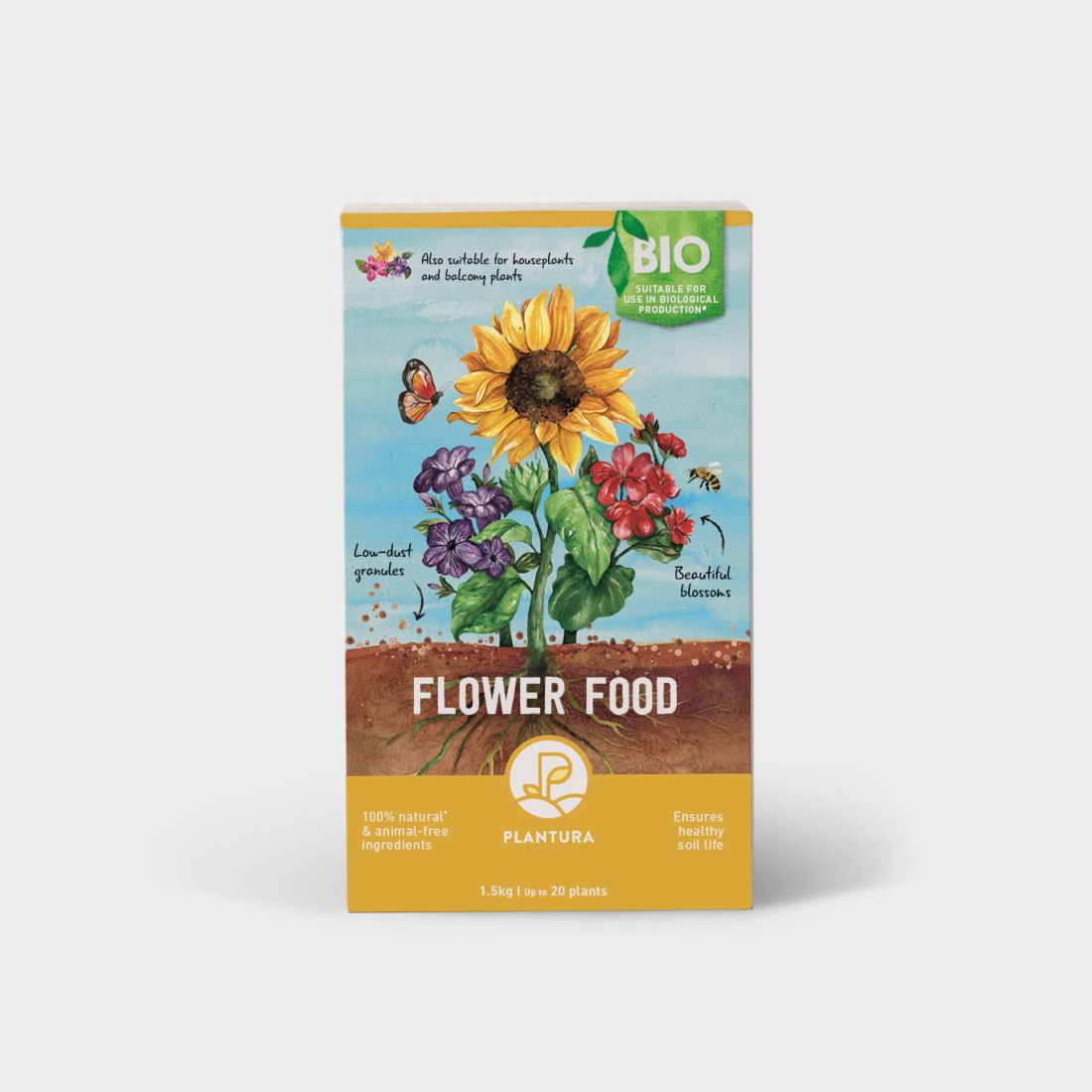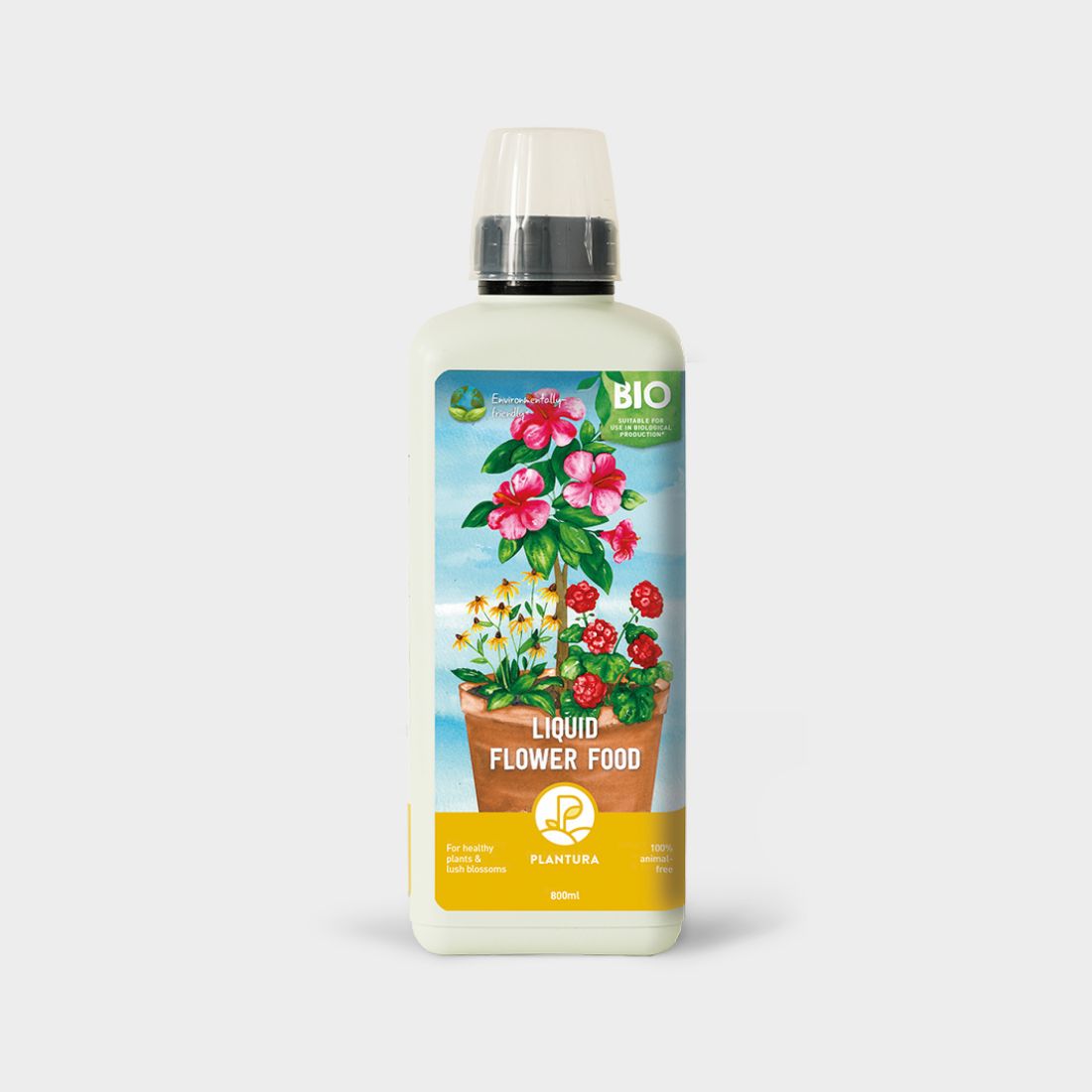Many people swear by vitamin C for strengthening their immune system and getting through the winter. But which fruit is highest in vitamin C? Discover the best vitamin C fruits to include in your diet.
Which fruit is highest in vitamin C? [Photo: bitt24/ Shutterstock.com] Hardly any nutrient is as important for the body as vitamin C. The ascorbic acid is not only involved in building up connective tissue, but also protects the body from free radicals and promotes absorption of iron. Above all, vitamin C is best known for boosting the immune system. It helps reduce susceptibility to colds as well as their duration. This is why many of us are mindful of our vitamin C intake, especially in winter. So which fruit is highest in vitamin C? Keep reading to find out more about 15 fruits rich in vitamin C.
1. Kakadu plum With a vitamin C content of 2,300 to 3,150 mg per 100g of pulp, Kakadu plum (Terminalia ferdinandiana ; also known as gubinge or billygoat plum) is very likely the fruit with the highest content of vitamin C. The green, oval-shaped fruits of the Kakadu plum are unfortunately not well known outside of Australia, so are rarely found in Europe or the US. However, interest in this unique plum is increasing. Its taste is reminiscent of apricots and plums, which is another factor for the plant’s growing popularity.
2. Camu camu This fruit is regarded as the new “superfood” from the Amazon rainforest. Camu camu (Myrciaria dubia ) is unknown to most people but it has recently started to grow in popularity. This exotic fruit is not only said to support the immune system but also is purported to have a positive effect on the gastro-intestinal tract. It contains many beneficial plant substances and is a great example of a fruit rich in vitamin C, with almost 1,800mg per 100g.
Camu camu is referred to as the new superfood due to its high content of vitamins [Photo: Ildi Papp/ Shutterstock.com] 3. Acerola or wild crapemyrtle A list of fruits highest in vitamin C would not be complete without acerola (Malpighia glabra ). It has just under 1,700mg per 100g. This healthy fruit also contains provitamin A and various B vitamins. Unfortunately, the red exotic fruit is seldom found in Europe as fresh fruit. Mostly it comes as juice or dried fruit. Although this reduces the vitamin C content, acerola is still a vitamin bomb, even in its dry or liquid form.
Acerola is definitely one of the fruits with the highest amount of vitamin C [Photo: GETSARAPORN/ Shutterstock.com] 4. Rose hips Roses (Rosa ) are a staple in many gardens, but you might not have expected them to crop up on a list of vitamin C fruits. In autumn, many wild rose species produce rose hips but they are rarely used. And what a shame! Hardly any other plant native to Europe has as much vitamin C. Depending on the variety, up to 500mg of the immune system-supporting substance is contained in just 100g of rose hips. What is more, there are a whole bunch of ways to devour these delicious wild berries. You can enjoy the fruity flavour raw or boiled to make tea or jam.
5. Seaberry Sea buckthorn or seaberry (Hippophae rhamnoides ) is teasingly referred to as the “lemon of the north” because it has a rather sour taste. However, in terms of vitamin C, seaberry outdoes lemon by far. At 450mg per 100g, the small fruit contains almost ten times the vitamin C content of a lemon. Sea buckthorn bears fruit from December until spring, making it the perfect vitamin C fruit for winter.
Its vitamin C content makes sea buckthorn the perfect winter fruit [Photo: Kirill Linnik/ Shutterstock.com] 6. Guava Common guava (Psidium guajava ) is rarely eaten fresh in Europe – unfortunately so. It has a beautiful bright pink and orange colour with a pleasant sweet and sour taste. And what is more, its vitamin C content is 273mg per 100g, making guava an excellent source of nutrients and, with just under 34kcal, a great low-calorie snack.
7. Blackcurrant Of all the fruits native to Europe, blackcurrant (Ribes nigrum ) are the fruit highest in vitamin C. At just under 180mg per 100g, the small berries even have almost five times more vitamin C than their cousins, redcurrants. In Europe, blackcurrant is unfortunately only in season from June to August. However, it can easily be processed into jam or juice and thus be preserved for the winter months. Alternatively, store your blackcurrants in the freezer for a tasty treat in winter.
Blackcurrants have about five times the amount of vitamin C of red currants [Photo: Bukhta Yurii/ Shutterstock.com] 8. Papaya Want to cover your entire daily vitamin C supply with just one fruit? No problem with papaya (Carica papaya ) — this tropical fruit contains a whopping 80mg per 100g. Papaya is also an excellent source of potassium. The tropical fruit can be found in Northern hemisphere supermarkets all year round so you can enjoy them through the winter season. When buying papayas, however, be careful to choose fruits that are still unripe, as they will continue to ripen even after you purchase them.
A Papaya contains enough vitamin C for the whole day [Photo: piyaraya/ Shutterstock.com] 9. Strawberry Many children wait impatiently for May, when the strawberries come back into season, and the sweet fruits can be eaten fresh from the field. Adults often cannot wait either! We all know they’re tasty, but would you have thought they’d be among the fruits high in vitamin C? Fortunately, strawberries (Fragaria ) are extremely healthy, with 65mg vitamin C and just 32kcal per 100g, these red berries should be a part of everybody’s diet.
10. Lemon If you think of a fruit rich in vitamin C, you simply cannot forget lemons (Citrus × lime ). The sour citrus fruit has always had a reputation for being particularly rich in nutrients. When people ask themselves which fruit is highest in vitamin C, many immediately think of lemons. But how much vitamin C do lemons really contain? Actually, at around 53mg per 100g, lemons are surprisingly average on our list. Nevertheless, drinking some hot lemon water as a household remedy for colds will definitely not do any harm.
The classic of among the fruits rich in vitamin C – lemons [Photo: piyaraya/ Shutterstock.com] 11. Orange It’s not surprising that oranges (Citrus sinensis L. ) have made it onto our list of fruits rich in vitamin C. As well as giving you a delicious start to the day, a glass of orange juice helps to cover your daily vitamin C intake: with around 50mg per 100g, this citrus fruit packs a real punch of vitamins. On top of this, oranges also contain numerous minerals such as potassium, magnesium and calcium.
Orange juice is a favourite for vitamin C intake [Photo: pilipphoto/ Shutterstock.com] 12. Grapefruit Due to its slightly bitter taste, grapefruit (Citrus paradisi L.) is not for everyone. But if you are not put off by that, you can benefit from including this vitamin C fruit in your diet. Grapefruit contains just under 40mg of vitamin C per 100g. Plus, its bitter substance, called naringin, also lowers cholesterol levels and can even have a positive effect on blood sugar.
13. Mango Mangos (Mangifera indica ) are popular for their sweet aroma. The high vitamin C content of 39mg per 100g is less known but makes it a very healthy snack too. Its B vitamins, vitamin E and a low concentration of acids also ensure that mangoes remain one of the most popular tropical fruits in Europe.
Mango is exotic and rich in vitamin C [Photo: Elizaveta Galitckaia/ Shutterstock.com] 14. Redcurrant Whether cooked into jam or fresh from the vine – redcurrants (Ribes rubrum ) are a sharp-tasting delight. Due to their low calorie and fat content, these berries are also considered extremely healthy. Of course, red currants are also high in vitamin C: on average, 100g of the berries have 36mg, which means that these fruits are true vitamin C bombs.
Rich in vitamins, low in calories – redcurrants [Photo: Svittlana/ Shutterstock.com] 15. Gooseberry Gooseberries (Ribes uva-crispa ) were long considered to be too sour and almost inedible – but, in fact, their pleasantly refreshing, sweet-sour taste is a real treat. With a vitamin C content of 34mg per 100g, as well as a high vitamin A and vitamin E content, gooseberries offer a rich source of nutrients.
Whilst fruits rich in vitamin C are great for boosting your immune system, there are also plenty of herbs with immune-boosting properties. Learn more in our article dedicated to immune-boosting herbs .
Subscribe to the Plantura newsletter ...and receive exciting gardening tips, special offers and a 10% discount on your next purchase in the
Plantura shop !
{ "products": [ { "name": "All Purpose Plant Food, 1.5kg", "unitPrice" : "Base price: £6.66/kg", "compareAtPriceString": "£12.99", "priceString": "£9.99", "compareAtPrice": 12.99, "price": 9.99, "sale":false, "percentage":"23%", "badge": "angebot", "url": "https://www.uk.plantura.garden/products/all-purpose-plant-food-1-5-kg", "available": true, "availabilityInfo":"", "campaignInfo":"","isSet": false, "priceLabel": "", "compareAtPriceLabel": "","reviewsData":{"reviewCount": 4, "reviewAverageValue": 4.8},"image": "https://www.uk.plantura.garden/cdn/shop/products/plantura-all-purpose-plant-food_1100x.jpg?v=1656335807","tags": "angebot,berries,box tree,cherry laurel,fig tree,Flowers,garlic,granular fertiliser,Hedges & Shrubs,Herbs,Houseplants,lavender,lettuce,oleander,palm tree,palm trees,pampas gras,plant fertiliser,slow release fertiliser,Vegetables","bulletPoints": ["Perfect for a variety of plants in the garden \u0026 on the balcony","Promotes healthy plant growth \u0026 an active soil life","Long-lasting fertiliser that is free from animal products - child \u0026 pet friendly"],"variants" : [ {"sku": "GF-APPF-A03K","available": true, "compareAtPriceString": "£12.99", "priceString": "£9.99", "compareAtPrice": 12.99, "price": 9.99, "sale":true, "percentage":"23%", "priceCurrency" : "GBP", "url" : "https://www.uk.plantura.garden/products/all-purpose-plant-food-1-5-kg?variant=37777826840739","isSet":false}, {"sku": "GF-APPF-3KG1","available": true, "compareAtPriceString": "£25.98", "priceString": "£19.49", "compareAtPrice": 25.98, "price": 19.49, "sale":true, "percentage":"25%", "priceCurrency" : "GBP", "url" : "https://www.uk.plantura.garden/products/all-purpose-plant-food-1-5-kg?variant=37777826873507","isSet":true }, {"sku": "GF-APPF-A06K","available": true, "compareAtPriceString": "£51.96", "priceString": "£37.99", "compareAtPrice": 51.96, "price": 37.99, "sale":true, "percentage":"27%", "priceCurrency" : "GBP", "url" : "https://www.uk.plantura.garden/products/all-purpose-plant-food-1-5-kg?variant=37777826906275","isSet":true }, {"sku": "GF-APPF-A12K","available": false, "compareAtPriceString": "£103.92", "priceString": "£69.99", "compareAtPrice": 103.92, "price": 69.99, "sale":true, "percentage":"33%", "priceCurrency" : "GBP", "url" : "https://www.uk.plantura.garden/products/all-purpose-plant-food-1-5-kg?variant=37777826939043","isSet":true }], "handle" : "all-purpose-plant-food-1-5-kg"}, { "name": "Autumn Lawn Feed 10.5kg, 200m2 coverage", "unitPrice" : "Base price: £2.86/kg", "compareAtPriceString": "", "priceString": "£29.99", "compareAtPrice": 0.0, "price": 29.99, "sale":false, "percentage":"", "badge": "angebot", "url": "https://www.uk.plantura.garden/products/autumn-lawn-feed-10-5-kg", "available": true, "availabilityInfo":"", "campaignInfo":"","isSet": false, "priceLabel": "", "compareAtPriceLabel": "","reviewsData":{"reviewCount": 11, "reviewAverageValue": 4.4},"image": "https://www.uk.plantura.garden/cdn/shop/products/autumn-lawn-feed-10-5kg-plantura_1100x.jpg?v=1657620622","tags": "autumn,autumn fertiliser,granular fertiliser,Lawn,lawn care,plant fertiliser,potassium,slow release fertiliser,soil,spreader,turf,vinasse","bulletPoints": ["Perfect for fertilising lawns from July to October","Promotes a winter-hardy lawn \u0026 fast regeneration in spring","Long-lasting fertiliser that is free from animal products - child \u0026 pet friendly"],"variants" : [ {"sku": "GF-PALF-105K","available": true, "compareAtPriceString": "", "priceString": "£29.99", "compareAtPrice": 0.0, "price": 29.99, "sale":false, "percentage":"", "priceCurrency" : "GBP", "url" : "https://www.uk.plantura.garden/products/autumn-lawn-feed-10-5-kg?variant=37777824219299","isSet":false}, {"sku": "GF-PALF-21KG","available": true, "compareAtPriceString": "£59.98", "priceString": "£56.99", "compareAtPrice": 59.98, "price": 56.99, "sale":true, "percentage":"5%", "priceCurrency" : "GBP", "url" : "https://www.uk.plantura.garden/products/autumn-lawn-feed-10-5-kg?variant=37777824252067","isSet":true }, {"sku": "GF-PALF-42KG","available": true, "compareAtPriceString": "£119.96", "priceString": "£110.99", "compareAtPrice": 119.96, "price": 110.99, "sale":true, "percentage":"7%", "priceCurrency" : "GBP", "url" : "https://www.uk.plantura.garden/products/autumn-lawn-feed-10-5-kg?variant=37777824284835","isSet":true }], "handle" : "autumn-lawn-feed-10-5-kg"}, { "name": "Autumn Lawn Feed 3kg, 60m2 coverage", "unitPrice" : "", "compareAtPriceString": "", "priceString": "£14.99", "compareAtPrice": 0.0, "price": 14.99, "sale":false, "percentage":"", "badge": "angebot", "url": "https://www.uk.plantura.garden/products/autumn-lawn-feed-3-kg", "available": false, "availabilityInfo":"", "campaignInfo":"","isSet": false, "priceLabel": "", "compareAtPriceLabel": "","reviewsData":{"reviewCount": 8, "reviewAverageValue": 4.9},"image": "https://www.uk.plantura.garden/cdn/shop/products/autumn-lawn-feed-3kg-plantura_1100x.jpg?v=1657615883","tags": "autumn,autumn fertiliser,discount,granular fertiliser,Lawn,lawn care,plant fertiliser,potassium,sale,slow release fertiliser,soil,spreader,turf,vinasse","bulletPoints": ["Perfect for fertilising lawns from July to October","Promotes a winter-hardy lawn \u0026 fast regeneration in spring","Long-lasting fertiliser that is free from animal products - child \u0026 pet friendly"],"variants" : [ {"sku": "GF-PALF-A03K","available": false, "compareAtPriceString": "", "priceString": "£14.99", "compareAtPrice": 0.0, "price": 14.99, "sale":false, "percentage":"", "priceCurrency" : "GBP", "url" : "https://www.uk.plantura.garden/products/autumn-lawn-feed-3-kg?variant=37777828282531","isSet":false}, {"sku": "GF-PALF-A06K","available": false, "compareAtPriceString": "£29.98", "priceString": "£27.99", "compareAtPrice": 29.98, "price": 27.99, "sale":true, "percentage":"7%", "priceCurrency" : "GBP", "url" : "https://www.uk.plantura.garden/products/autumn-lawn-feed-3-kg?variant=37777828315299","isSet":true }], "handle" : "autumn-lawn-feed-3-kg"}, { "name": "Box Tree Moth Trap", "unitPrice" : "", "compareAtPriceString": "", "priceString": "£24.99", "compareAtPrice": 0.0, "price": 24.99, "sale":false, "percentage":"", "badge": "angebot", "url": "https://www.uk.plantura.garden/products/box-tree-moth-trap", "available": false, "availabilityInfo":"", "campaignInfo":"","isSet": false, "priceLabel": "", "compareAtPriceLabel": "","reviewsData":{"reviewCount": 3, "reviewAverageValue": 5.0},"image": "https://www.uk.plantura.garden/cdn/shop/products/box-tree-moth-trap-plantura_1100x.jpg?v=1657530999","tags": "box tree,box tree caterpillar,Box Tree Moth,pheromone trap","bulletPoints": ["Reusable pheromone trap for monitoring box tree moth activity","For the early detection of infestations - covers an area of up to 180m\u003csub\u003e2\u003c\/sub\u003e","100% insecticide-free - not harmful to humans or pets"],"variants" : [ {"sku": "MT-BTMT-RT01","available": false, "compareAtPriceString": "", "priceString": "£24.99", "compareAtPrice": 0.0, "price": 24.99, "sale":false, "percentage":"", "priceCurrency" : "GBP", "url" : "https://www.uk.plantura.garden/products/box-tree-moth-trap?variant=41520312058019","isSet":false}], "handle" : "box-tree-moth-trap"}, { "name": "Box Tree Moth Trap Refill 6 dispensers", "unitPrice" : "", "compareAtPriceString": "", "priceString": "£7.49", "compareAtPrice": 0.0, "price": 7.49, "sale":false, "percentage":"", "badge": "angebot", "url": "https://www.uk.plantura.garden/products/box-tree-moth-trap-refill", "available": true, "availabilityInfo":"", "campaignInfo":"","isSet": false, "priceLabel": "", "compareAtPriceLabel": "","reviewsData":{"reviewCount": 2, "reviewAverageValue": 2.5},"image": "https://www.uk.plantura.garden/cdn/shop/products/box-tree-moth-trap-refill-plantura_1100x.jpg?v=1657531158","tags": "box tree,box tree caterpillar,Box Tree Moth,pheromone trap","bulletPoints": ["6 dispensers for refilling our reusable Plantura Box Tree Moth Trap","Pheromone dispenser for attracting male box tree moths","100% insecticide free - not harmful to humans or pets"],"variants" : [ {"sku": "MT-BTMT-RD06","available": true, "compareAtPriceString": "", "priceString": "£7.49", "compareAtPrice": 0.0, "price": 7.49, "sale":false, "percentage":"", "priceCurrency" : "GBP", "url" : "https://www.uk.plantura.garden/products/box-tree-moth-trap-refill?variant=41520321429667","isSet":false}], "handle" : "box-tree-moth-trap-refill"}, { "name": "Clothes Moth Traps 6-pack", "unitPrice" : "", "compareAtPriceString": "", "priceString": "£9.99", "compareAtPrice": 0.0, "price": 9.99, "sale":false, "percentage":"", "badge": "angebot", "url": "https://www.uk.plantura.garden/products/clothes-moth-traps", "available": false, "availabilityInfo":"", "campaignInfo":"","isSet": false, "priceLabel": "", "compareAtPriceLabel": "","reviewsData":{"reviewCount": 7, "reviewAverageValue": 5.0},"image": "https://www.uk.plantura.garden/cdn/shop/products/clothes-moth-traps-plantura_1100x.jpg?v=1657532784","tags": "carpet moths,carpet moths traps,clothes moth traps,clothes moths,clothes moths pheromone traps,moth traps,pheromone traps,sticky traps","bulletPoints": ["6 odourless, long-lasting clothes moth traps ","Ideal for detecting infestations in wardrobes \u0026 storage rooms early on","100% insecticide-free \u0026 non-toxic"],"variants" : [ {"sku": "MT-CMT1-TW06","available": false, "compareAtPriceString": "", "priceString": "£9.99", "compareAtPrice": 0.0, "price": 9.99, "sale":false, "percentage":"", "priceCurrency" : "GBP", "url" : "https://www.uk.plantura.garden/products/clothes-moth-traps?variant=42646008299683","isSet":false}], "handle" : "clothes-moth-traps"}, { "name": "Drought-Resistant Lawn Seed, 2kg, 80m2 coverage", "unitPrice" : "Base price: £12.50/kg", "compareAtPriceString": "£29.99", "priceString": "£24.99", "compareAtPrice": 29.99, "price": 24.99, "sale":false, "percentage":"17%", "badge": "angebot", "url": "https://www.uk.plantura.garden/products/drought-resistant-lawn-seed-2-kg", "available": true, "availabilityInfo":"", "campaignInfo":"","isSet": false, "priceLabel": "", "compareAtPriceLabel": "","reviewsData":{"reviewCount": 2, "reviewAverageValue": 4.5},"image": "https://www.uk.plantura.garden/cdn/shop/products/drought-resistant-lawn-seed-plantura_1100x.jpg?v=1657716694","tags": "angebot,grass seed,grasses,Lawn,lawn seed,meadow,New Lawn,rsm,seed,seeds,soil,sowing,spreader","bulletPoints": ["Perfect for regions with hot \u0026 dry summers","Saves water with heat-tolerant \u0026 deep-rooted grasses","Premium lawn seed mixture with high-quality, certified grass varieties"],"variants" : [ {"sku": "LS-PDRL-02KG","available": true, "compareAtPriceString": "£29.99", "priceString": "£24.99", "compareAtPrice": 29.99, "price": 24.99, "sale":true, "percentage":"17%", "priceCurrency" : "GBP", "url" : "https://www.uk.plantura.garden/products/drought-resistant-lawn-seed-2-kg?variant=37777803018403","isSet":false}, {"sku": "LS-PDRL-04KG","available": true, "compareAtPriceString": "£59.98", "priceString": "£44.99", "compareAtPrice": 59.98, "price": 44.99, "sale":true, "percentage":"25%", "priceCurrency" : "GBP", "url" : "https://www.uk.plantura.garden/products/drought-resistant-lawn-seed-2-kg?variant=37777803051171","isSet":true }, {"sku": "LS-PDRL-10KG","available": true, "compareAtPriceString": "£149.95", "priceString": "£99.99", "compareAtPrice": 149.95, "price": 99.99, "sale":true, "percentage":"33%", "priceCurrency" : "GBP", "url" : "https://www.uk.plantura.garden/products/drought-resistant-lawn-seed-2-kg?variant=37777803116707","isSet":true }], "handle" : "drought-resistant-lawn-seed-2-kg"}, { "name": "Flower Food, 1.5kg", "unitPrice" : "Base price: £6.66/kg", "compareAtPriceString": "£12.99", "priceString": "£9.99", "compareAtPrice": 12.99, "price": 9.99, "sale":false, "percentage":"23%", "badge": "angebot", "url": "https://www.uk.plantura.garden/products/flower-food-1-5-kg", "available": true, "availabilityInfo":"", "campaignInfo":"","isSet": false, "priceLabel": "", "compareAtPriceLabel": "","reviewsData":null,"image": "https://www.uk.plantura.garden/cdn/shop/products/plantura-flower-food_1100x.jpg?v=1656336129","tags": "angebot,clematis,flowering plants,Flowers,fuchsia,garden flowers,geranium,granular fertiliser,hibiscus,lily,oleander,passion flower,peony,petunia,plant fertiliser,slow release fertiliser,vinasse","bulletPoints": ["Perfect for flowering plants in the garden \u0026 on the balcony","For healthier plants with beautiful \u0026 long-lasting blossoms","Long-lasting fertiliser that is free from animal products - child \u0026 pet friendly"],"variants" : [ {"sku": "GF-PFF1-F15K","available": true, "compareAtPriceString": "£12.99", "priceString": "£9.99", "compareAtPrice": 12.99, "price": 9.99, "sale":true, "percentage":"23%", "priceCurrency" : "GBP", "url" : "https://www.uk.plantura.garden/products/flower-food-1-5-kg?variant=37777827528867","isSet":false}, {"sku": "GF-PFF1-F03K","available": true, "compareAtPriceString": "£25.98", "priceString": "£19.49", "compareAtPrice": 25.98, "price": 19.49, "sale":true, "percentage":"25%", "priceCurrency" : "GBP", "url" : "https://www.uk.plantura.garden/products/flower-food-1-5-kg?variant=37777827561635","isSet":true }, {"sku": "GF-PFF1-F06K","available": true, "compareAtPriceString": "£51.96", "priceString": "£37.99", "compareAtPrice": 51.96, "price": 37.99, "sale":true, "percentage":"27%", "priceCurrency" : "GBP", "url" : "https://www.uk.plantura.garden/products/flower-food-1-5-kg?variant=37777827627171","isSet":true }, {"sku": "GF-PFF1-F12K","available": true, "compareAtPriceString": "£103.92", "priceString": "£69.99", "compareAtPrice": 103.92, "price": 69.99, "sale":true, "percentage":"33%", "priceCurrency" : "GBP", "url" : "https://www.uk.plantura.garden/products/flower-food-1-5-kg?variant=37777827659939","isSet":true }], "handle" : "flower-food-1-5-kg"}, { "name": "Hard-Wearing Lawn Seed, 2kg, 100m2 coverage", "unitPrice" : "Base price: £10.00/kg", "compareAtPriceString": "£25.99", "priceString": "£19.99", "compareAtPrice": 25.99, "price": 19.99, "sale":false, "percentage":"23%", "badge": "angebot", "url": "https://www.uk.plantura.garden/products/hard-wearing-lawn-seed-2-kg", "available": true, "availabilityInfo":"", "campaignInfo":"","isSet": false, "priceLabel": "", "compareAtPriceLabel": "","reviewsData":{"reviewCount": 1, "reviewAverageValue": 5.0},"image": "https://www.uk.plantura.garden/cdn/shop/products/hard-wearing-lawn-seed-plantura_1100x.jpg?v=1657796876","tags": "angebot,children,grass seed,grasses,Lawn,lawn seed,meadow,New Lawn,rsm,seed,seeds,soil,sowing,sports turf,spreader,tough lawn","bulletPoints": ["Creates particularly strong \u0026 durable lawns","Contains regenerative lawn seeds for thick turf","Premium lawn seed mixture with high-quality, certified grass varieties"],"variants" : [ {"sku": "LS-PHWL-02KG","available": true, "compareAtPriceString": "£25.99", "priceString": "£19.99", "compareAtPrice": 25.99, "price": 19.99, "sale":true, "percentage":"23%", "priceCurrency" : "GBP", "url" : "https://www.uk.plantura.garden/products/hard-wearing-lawn-seed-2-kg?variant=37777804951715","isSet":false}, {"sku": "LS-PHWL-04KG","available": true, "compareAtPriceString": "£51.98", "priceString": "£37.99", "compareAtPrice": 51.98, "price": 37.99, "sale":true, "percentage":"27%", "priceCurrency" : "GBP", "url" : "https://www.uk.plantura.garden/products/hard-wearing-lawn-seed-2-kg?variant=37777804984483","isSet":true }, {"sku": "LS-PHWL-10KG","available": true, "compareAtPriceString": "£129.95", "priceString": "£79.99", "compareAtPrice": 129.95, "price": 79.99, "sale":true, "percentage":"38%", "priceCurrency" : "GBP", "url" : "https://www.uk.plantura.garden/products/hard-wearing-lawn-seed-2-kg?variant=37777805017251","isSet":true }], "handle" : "hard-wearing-lawn-seed-2-kg"}, { "name": "Hydrangea Food, 1.5kg", "unitPrice" : "Base price: £8.66/kg", "compareAtPriceString": "", "priceString": "£12.99", "compareAtPrice": 0.0, "price": 12.99, "sale":false, "percentage":"", "badge": "angebot", "url": "https://www.uk.plantura.garden/products/hydrangea-food-1-5-kg", "available": true, "availabilityInfo":"", "campaignInfo":"","isSet": false, "priceLabel": "", "compareAtPriceLabel": "","reviewsData":{"reviewCount": 5, "reviewAverageValue": 5.0},"image": "https://www.uk.plantura.garden/cdn/shop/products/plantura-hydrangea-food_1100x.jpg?v=1656337945","tags": "azalea,ericaceous fertiliser,Flowers,granular fertiliser,hydrangea arborescens,hydrangea macrophylla,hydrangea paniculata,hydrangea petiolaris,hydrangea serrata,Hydrangeas,plant fertiliser,rhododendron,slow release fertiliser,vinasse","bulletPoints": ["For beautiful hydrangeas with lush blooms in pots \u0026 flower beds","Prevents common deficiency symptoms \u0026 supports healthy plant growth","Long-lasting fertiliser that is free from animal products - child \u0026 pet friendly"],"variants" : [ {"sku": "GF-PHF1-H15K","available": true, "compareAtPriceString": "", "priceString": "£12.99", "compareAtPrice": 0.0, "price": 12.99, "sale":false, "percentage":"", "priceCurrency" : "GBP", "url" : "https://www.uk.plantura.garden/products/hydrangea-food-1-5-kg?variant=37777820614819","isSet":false}, {"sku": "GF-PHF1-H03K","available": true, "compareAtPriceString": "£25.98", "priceString": "£24.99", "compareAtPrice": 25.98, "price": 24.99, "sale":true, "percentage":"4%", "priceCurrency" : "GBP", "url" : "https://www.uk.plantura.garden/products/hydrangea-food-1-5-kg?variant=37777820647587","isSet":true }, {"sku": "GF-PHF1-H06K","available": true, "compareAtPriceString": "£51.96", "priceString": "£47.99", "compareAtPrice": 51.96, "price": 47.99, "sale":true, "percentage":"8%", "priceCurrency" : "GBP", "url" : "https://www.uk.plantura.garden/products/hydrangea-food-1-5-kg?variant=37777820680355","isSet":true }, {"sku": "GF-PHF1-H12K","available": true, "compareAtPriceString": "£103.92", "priceString": "£93.99", "compareAtPrice": 103.92, "price": 93.99, "sale":true, "percentage":"10%", "priceCurrency" : "GBP", "url" : "https://www.uk.plantura.garden/products/hydrangea-food-1-5-kg?variant=37777820713123","isSet":true }], "handle" : "hydrangea-food-1-5-kg"}, { "name": "Lawn Feed 10.5kg, 250m2 coverage", "unitPrice" : "Base price: £2.28/kg", "compareAtPriceString": "£29.99", "priceString": "£23.99", "compareAtPrice": 29.99, "price": 23.99, "sale":false, "percentage":"20%", "badge": "angebot", "url": "https://www.uk.plantura.garden/products/lawn-feed-10-5-kg", "available": true, "availabilityInfo":"", "campaignInfo":"","isSet": false, "priceLabel": "", "compareAtPriceLabel": "","reviewsData":{"reviewCount": 4, "reviewAverageValue": 5.0},"image": "https://www.uk.plantura.garden/cdn/shop/products/lawn-feed-10-5kg-plantura_1100x.jpg?v=1657613812","tags": "angebot,granular fertiliser,Lawn,lawn care,nitrogen fertiliser,plant fertiliser,Rasendünger,Rasenrelevant (ohne Herbstrasen),slow release fertiliser,soil,spreader,turf,vinasse","bulletPoints": ["Perfect for a healthy \u0026 lush green lawn without moss","Supports your lawn with all the nutrients it needs in spring \u0026 summer","Long-lasting fertiliser that is free from animal products - child \u0026 pet friendly"],"variants" : [ {"sku": "GF-PLF3-105K","available": true, "compareAtPriceString": "£29.99", "priceString": "£23.99", "compareAtPrice": 29.99, "price": 23.99, "sale":true, "percentage":"20%", "priceCurrency" : "GBP", "url" : "https://www.uk.plantura.garden/products/lawn-feed-10-5-kg?variant=37777822941347","isSet":false}, {"sku": "GF-PLF3-21KG","available": true, "compareAtPriceString": "£59.98", "priceString": "£44.99", "compareAtPrice": 59.98, "price": 44.99, "sale":true, "percentage":"25%", "priceCurrency" : "GBP", "url" : "https://www.uk.plantura.garden/products/lawn-feed-10-5-kg?variant=37777823006883","isSet":true }, {"sku": "GF-PLF3-42KG","available": true, "compareAtPriceString": "£119.96", "priceString": "£79.99", "compareAtPrice": 119.96, "price": 79.99, "sale":true, "percentage":"33%", "priceCurrency" : "GBP", "url" : "https://www.uk.plantura.garden/products/lawn-feed-10-5-kg?variant=37777823039651","isSet":true }], "handle" : "lawn-feed-10-5-kg"}, { "name": "Lawn Feed 3kg, 70m2 coverage", "unitPrice" : "Base price: £3.00/kg", "compareAtPriceString": "£14.99", "priceString": "£8.99", "compareAtPrice": 14.99, "price": 8.99, "sale":false, "percentage":"40%", "badge": "angebot", "url": "https://www.uk.plantura.garden/products/lawn-feed-3-kg", "available": true, "availabilityInfo":"", "campaignInfo":"","isSet": false, "priceLabel": "", "compareAtPriceLabel": "","reviewsData":{"reviewCount": 2, "reviewAverageValue": 5.0},"image": "https://www.uk.plantura.garden/cdn/shop/products/lawn-feed-3kg-plantura_1100x.jpg?v=1657612205","tags": "angebot,granular fertiliser,Lawn,lawn care,nitrogen fertiliser,plant fertiliser,Rasenrelevant (ohne Herbstrasen),slow release fertiliser,soil,spreader,turf,vinasse","bulletPoints": ["Perfect for a healthy \u0026 lush green lawn without moss","Supports your lawn with all the nutrients it needs in spring \u0026 summer","Long-lasting fertiliser that is free from animal products - child \u0026 pet friendly"],"variants" : [ {"sku": "GF-PLF1-L03K","available": true, "compareAtPriceString": "£14.99", "priceString": "£8.99", "compareAtPrice": 14.99, "price": 8.99, "sale":true, "percentage":"40%", "priceCurrency" : "GBP", "url" : "https://www.uk.plantura.garden/products/lawn-feed-3-kg?variant=37777828905123","isSet":false}, {"sku": "GF-PLF1-L06K","available": true, "compareAtPriceString": "£29.98", "priceString": "£16.99", "compareAtPrice": 29.98, "price": 16.99, "sale":true, "percentage":"43%", "priceCurrency" : "GBP", "url" : "https://www.uk.plantura.garden/products/lawn-feed-3-kg?variant=37777828937891","isSet":true }], "handle" : "lawn-feed-3-kg"}, { "name": "Lawn Overseeding Mix, 2kg, 100m2", "unitPrice" : "Base price: £10.00/kg", "compareAtPriceString": "£25.99", "priceString": "£19.99", "compareAtPrice": 25.99, "price": 19.99, "sale":false, "percentage":"23%", "badge": "angebot", "url": "https://www.uk.plantura.garden/products/lawn-overseeding-mix-2-kg", "available": true, "availabilityInfo":"", "campaignInfo":"","isSet": false, "priceLabel": "", "compareAtPriceLabel": "","reviewsData":{"reviewCount": 9, "reviewAverageValue": 4.9},"image": "https://www.uk.plantura.garden/cdn/shop/products/lawn-overseeding-mix-2-kg-plantura_1100x.jpg?v=1657627004","tags": "angebot,grass seed,grasses,Lawn,lawn care,lawn seed,meadow,repair,reseeding,rsm,seed,seeds,soil,spreader,Thin Lawn","bulletPoints": ["Perfect for fixing thinning \u0026 weedy lawns","Repairs lawns quickly \u0026 reliably - for lush green grass","High-quality, certified grass varieties \u0026 coated seeds"],"variants" : [ {"sku": "LS-PLOM-02KG","available": true, "compareAtPriceString": "£25.99", "priceString": "£19.99", "compareAtPrice": 25.99, "price": 19.99, "sale":true, "percentage":"23%", "priceCurrency" : "GBP", "url" : "https://www.uk.plantura.garden/products/lawn-overseeding-mix-2-kg?variant=37777799938211","isSet":false}, {"sku": "LS-PLOM-04KG","available": true, "compareAtPriceString": "£51.98", "priceString": "£37.99", "compareAtPrice": 51.98, "price": 37.99, "sale":true, "percentage":"27%", "priceCurrency" : "GBP", "url" : "https://www.uk.plantura.garden/products/lawn-overseeding-mix-2-kg?variant=37777799970979","isSet":true }, {"sku": "LS-PLOM-10KG","available": true, "compareAtPriceString": "£129.95", "priceString": "£79.99", "compareAtPrice": 129.95, "price": 79.99, "sale":true, "percentage":"38%", "priceCurrency" : "GBP", "url" : "https://www.uk.plantura.garden/products/lawn-overseeding-mix-2-kg?variant=37777800003747","isSet":true }], "handle" : "lawn-overseeding-mix-2-kg"}, { "name": "Lawn Overseeding Mix,1kg, 50m2", "unitPrice" : "Base price: £16.99/kg", "compareAtPriceString": "", "priceString": "£16.99", "compareAtPrice": 0.0, "price": 16.99, "sale":false, "percentage":"", "badge": "angebot", "url": "https://www.uk.plantura.garden/products/lawn-overseeding-mix-1kg", "available": true, "availabilityInfo":"", "campaignInfo":"","isSet": false, "priceLabel": "", "compareAtPriceLabel": "","reviewsData":{"reviewCount": 1, "reviewAverageValue": 5.0},"image": "https://www.uk.plantura.garden/cdn/shop/products/lawn-overseeding-mix-1-kg-plantura_1200x.jpg?v=1657702293","tags": "grass seed,grasses,Lawn,lawn care,lawn seed,meadow,repair,reseeding,rsm,seed,seeds,soil,spreader,Thin Lawn","bulletPoints": ["Perfect for fixing thinning \u0026 weedy lawns","Repairs lawns quickly \u0026 reliably - for lush green grass","High-quality, certified grass varieties \u0026 coated seeds"],"variants" : [ {"sku": "LS-PLOM-01KG","available": true, "compareAtPriceString": "", "priceString": "£16.99", "compareAtPrice": 0.0, "price": 16.99, "sale":false, "percentage":"", "priceCurrency" : "GBP", "url" : "https://www.uk.plantura.garden/products/lawn-overseeding-mix-1kg?variant=37777801412771","isSet":false}], "handle" : "lawn-overseeding-mix-1kg"}, { "name": "Lawn Repair Mix, 1.5kg, 10m2 coverage", "unitPrice" : "Base price: £8.66/kg", "compareAtPriceString": "£16.99", "priceString": "£12.99", "compareAtPrice": 16.99, "price": 12.99, "sale":false, "percentage":"24%", "badge": "angebot", "url": "https://www.uk.plantura.garden/products/lawn-repair-mix-1-5-kg", "available": true, "availabilityInfo":"", "campaignInfo":"","isSet": false, "priceLabel": "", "compareAtPriceLabel": "","reviewsData":{"reviewCount": 5, "reviewAverageValue": 4.8},"image": "https://www.uk.plantura.garden/cdn/shop/products/lawn-repair-mix-plantura_1100x.jpg?v=1657877879","tags": "angebot,grass seed,grasses,Lawn,lawn care,lawn seed,meadow,overseeding,patchy grass,Patchy Lawn,reseeding,rsm,seed,seeds,soil,spreader","bulletPoints": ["Repairs patches in the lawn quickly \u0026 reliably","With fertiliser and lime for a greener \u0026 thicker lawn","Premium lawn seed mixture with high-quality, certified grass varieties"],"variants" : [ {"sku": "LS-PLRM-015G","available": true, "compareAtPriceString": "£16.99", "priceString": "£12.99", "compareAtPrice": 16.99, "price": 12.99, "sale":true, "percentage":"24%", "priceCurrency" : "GBP", "url" : "https://www.uk.plantura.garden/products/lawn-repair-mix-1-5-kg?variant=37777802002595","isSet":false}, {"sku": "LS-PLRM-03KG","available": true, "compareAtPriceString": "£33.98", "priceString": "£24.99", "compareAtPrice": 33.98, "price": 24.99, "sale":true, "percentage":"26%", "priceCurrency" : "GBP", "url" : "https://www.uk.plantura.garden/products/lawn-repair-mix-1-5-kg?variant=37777802035363","isSet":true }, {"sku": "LS-PLRM-06KG","available": true, "compareAtPriceString": "£67.96", "priceString": "£44.99", "compareAtPrice": 67.96, "price": 44.99, "sale":true, "percentage":"34%", "priceCurrency" : "GBP", "url" : "https://www.uk.plantura.garden/products/lawn-repair-mix-1-5-kg?variant=37777802068131","isSet":true }], "handle" : "lawn-repair-mix-1-5-kg"}, { "name": "Liquid Citrus Food, 800ml", "unitPrice" : "", "compareAtPriceString": "", "priceString": "£10.99", "compareAtPrice": 0.0, "price": 10.99, "sale":false, "percentage":"", "badge": "angebot", "url": "https://www.uk.plantura.garden/products/liquid-citrus-food-800-ml", "available": false, "availabilityInfo":"", "campaignInfo":"","isSet": false, "priceLabel": "", "compareAtPriceLabel": "","reviewsData":{"reviewCount": 8, "reviewAverageValue": 4.9},"image": "https://www.uk.plantura.garden/cdn/shop/products/liquid-citrus-food-plantura_1100x.jpg?v=1657542983","tags": "citrus plants,CitrusMediterraneanplants,clementine,fig,grapefruit,kumquat,lemon,lemon tree,lime,liquid fertiliser,mandarin,mediterranean plants,olive,olive tree,orange,palm tree,palm tree fertiliser,plant fertiliser,vinasse","bulletPoints": ["Perfect for all citrus plants \u0026 Mediterranean plants","Liquid fertiliser for healthy plants \u0026 aromatic fruit","Quick \u0026 easy application - child \u0026 pet friendly"],"variants" : [ {"sku": "LF-LCF1-C80M","available": false, "compareAtPriceString": "", "priceString": "£10.99", "compareAtPrice": 0.0, "price": 10.99, "sale":false, "percentage":"", "priceCurrency" : "GBP", "url" : "https://www.uk.plantura.garden/products/liquid-citrus-food-800-ml?variant=37777795973283","isSet":false}, {"sku": "LF-LCF1-C16L","available": false, "compareAtPriceString": "£21.98", "priceString": "£20.99", "compareAtPrice": 21.98, "price": 20.99, "sale":true, "percentage":"5%", "priceCurrency" : "GBP", "url" : "https://www.uk.plantura.garden/products/liquid-citrus-food-800-ml?variant=37777796006051","isSet":true }, {"sku": "LF-LCF1-C32L","available": false, "compareAtPriceString": "£43.96", "priceString": "£40.99", "compareAtPrice": 43.96, "price": 40.99, "sale":true, "percentage":"7%", "priceCurrency" : "GBP", "url" : "https://www.uk.plantura.garden/products/liquid-citrus-food-800-ml?variant=37777796038819","isSet":true }, {"sku": "LF-LCF1-C96L","available": false, "compareAtPriceString": "£131.88", "priceString": "£119.99", "compareAtPrice": 131.88, "price": 119.99, "sale":true, "percentage":"9%", "priceCurrency" : "GBP", "url" : "https://www.uk.plantura.garden/products/liquid-citrus-food-800-ml?variant=37777796071587","isSet":true }], "handle" : "liquid-citrus-food-800-ml"}, { "name": "Liquid Flower Food, 800ml", "unitPrice" : "Base price: £13.74/l", "compareAtPriceString": "", "priceString": "£10.99", "compareAtPrice": 0.0, "price": 10.99, "sale":false, "percentage":"", "badge": "angebot", "url": "https://www.uk.plantura.garden/products/liquid-flower-food-800-ml", "available": true, "availabilityInfo":"", "campaignInfo":"","isSet": false, "priceLabel": "", "compareAtPriceLabel": "","reviewsData":{"reviewCount": 1, "reviewAverageValue": 5.0},"image": "https://www.uk.plantura.garden/cdn/shop/products/liquid-flower-food-plantura_1100x.jpg?v=1657542082","tags": "balcony flowers,clematis,FlowerBalconyplants,flowering plants,Flowers,fuchsia,geranium,hibiscus,lily,liquid fertiliser,oleander,passion flower,peony,petunia,plant fertiliser,vinasse","bulletPoints": ["Perfect for all flowers \u0026 balcony plants","Liquid fertiliser for a lush blossom throughout the season","Quick \u0026 easy application - child \u0026 pet friendly"],"variants" : [ {"sku": "LF-LFF1-F80M","available": true, "compareAtPriceString": "", "priceString": "£10.99", "compareAtPrice": 0.0, "price": 10.99, "sale":false, "percentage":"", "priceCurrency" : "GBP", "url" : "https://www.uk.plantura.garden/products/liquid-flower-food-800-ml?variant=37777796530339","isSet":false}, {"sku": "LF-LFF1-F16L","available": true, "compareAtPriceString": "£21.98", "priceString": "£20.99", "compareAtPrice": 21.98, "price": 20.99, "sale":true, "percentage":"5%", "priceCurrency" : "GBP", "url" : "https://www.uk.plantura.garden/products/liquid-flower-food-800-ml?variant=37777796563107","isSet":true }, {"sku": "LF-LFF1-F32L","available": true, "compareAtPriceString": "£43.96", "priceString": "£40.99", "compareAtPrice": 43.96, "price": 40.99, "sale":true, "percentage":"7%", "priceCurrency" : "GBP", "url" : "https://www.uk.plantura.garden/products/liquid-flower-food-800-ml?variant=37777796595875","isSet":true }, {"sku": "LF-LFF1-F96L","available": true, "compareAtPriceString": "£131.88", "priceString": "£119.99", "compareAtPrice": 131.88, "price": 119.99, "sale":true, "percentage":"9%", "priceCurrency" : "GBP", "url" : "https://www.uk.plantura.garden/products/liquid-flower-food-800-ml?variant=37777796628643","isSet":true }], "handle" : "liquid-flower-food-800-ml"}, { "name": "Liquid Houseplant Food, 800ml", "unitPrice" : "", "compareAtPriceString": "£10.99", "priceString": "£8.99", "compareAtPrice": 10.99, "price": 8.99, "sale":true, "percentage":"18%", "badge": "angebot", "url": "https://www.uk.plantura.garden/products/liquid-houseplant-food-800-ml", "available": false, "availabilityInfo":"", "campaignInfo":"","isSet": false, "priceLabel": "", "compareAtPriceLabel": "","reviewsData":{"reviewCount": 7, "reviewAverageValue": 5.0},"image": "https://www.uk.plantura.garden/cdn/shop/products/liquid-houseplant-food-plantura_1100x.jpg?v=1657542279","tags": "angebot,box tree,cactus,Herbs,Houseplants,indoor plant,liquid fertiliser,monstera,palm tree,plant fertiliser,pot,succulent,vinasse","bulletPoints": ["Perfect for a wide variety of houseplants \u0026 foliage plants","Liquid fertiliser for robust plants \u0026 healthy growth","Quick \u0026 easy application - child \u0026 pet friendly"],"variants" : [ {"sku": "LF-LHF1-H80M","available": false, "compareAtPriceString": "£10.99", "priceString": "£8.99", "compareAtPrice": 10.99, "price": 8.99, "sale":true, "percentage":"18%", "priceCurrency" : "GBP", "url" : "https://www.uk.plantura.garden/products/liquid-houseplant-food-800-ml?variant=37777795088547","isSet":false}, {"sku": "LF-LHF1-H16L","available": false, "compareAtPriceString": "£21.98", "priceString": "£16.99", "compareAtPrice": 21.98, "price": 16.99, "sale":true, "percentage":"23%", "priceCurrency" : "GBP", "url" : "https://www.uk.plantura.garden/products/liquid-houseplant-food-800-ml?variant=37777795154083","isSet":true }, {"sku": "LF-LHF1-H32L","available": false, "compareAtPriceString": "£43.96", "priceString": "£32.99", "compareAtPrice": 43.96, "price": 32.99, "sale":true, "percentage":"25%", "priceCurrency" : "GBP", "url" : "https://www.uk.plantura.garden/products/liquid-houseplant-food-800-ml?variant=37777795186851","isSet":true }, {"sku": "LF-LHF1-H96L","available": false, "compareAtPriceString": "£131.88", "priceString": "£96.99", "compareAtPrice": 131.88, "price": 96.99, "sale":true, "percentage":"26%", "priceCurrency" : "GBP", "url" : "https://www.uk.plantura.garden/products/liquid-houseplant-food-800-ml?variant=37777795219619","isSet":true }], "handle" : "liquid-houseplant-food-800-ml"}, { "name": "Liquid Tomato Food, 800ml", "unitPrice" : "Base price: £11.24/l", "compareAtPriceString": "£10.99", "priceString": "£8.99", "compareAtPrice": 10.99, "price": 8.99, "sale":false, "percentage":"18%", "badge": "angebot", "url": "https://www.uk.plantura.garden/products/liquid-tomato-food-800-ml", "available": true, "availabilityInfo":"", "campaignInfo":"","isSet": false, "priceLabel": "", "compareAtPriceLabel": "","reviewsData":{"reviewCount": 1, "reviewAverageValue": 5.0},"image": "https://www.uk.plantura.garden/cdn/shop/products/liquid-tomato-food-plantura_1100x.jpg?v=1657542588","tags": "angebot,aubergine,bean,berry fertiliser,carrot,cauliflower,chili,chilli,courgette,cucumber,garlic,liquid fertiliser,onion,pepper,plant fertiliser,potassium,potato,pumpkin,radish,rhubarb,strawberry,Tomatoes,vegetable,Vegetables,vinasse","bulletPoints": ["Perfect for tomatoes \u0026 other vegetables","Liquid fertiliser for healthy plant growth \u0026 an abundant harvest","Quick \u0026 easy application - child \u0026 pet friendly"],"variants" : [ {"sku": "LF-LTF1-T80M","available": true, "compareAtPriceString": "£10.99", "priceString": "£8.99", "compareAtPrice": 10.99, "price": 8.99, "sale":true, "percentage":"18%", "priceCurrency" : "GBP", "url" : "https://www.uk.plantura.garden/products/liquid-tomato-food-800-ml?variant=37777795580067","isSet":false}, {"sku": "LF-LTF1-T16L","available": true, "compareAtPriceString": "£21.98", "priceString": "£16.99", "compareAtPrice": 21.98, "price": 16.99, "sale":true, "percentage":"23%", "priceCurrency" : "GBP", "url" : "https://www.uk.plantura.garden/products/liquid-tomato-food-800-ml?variant=37777795612835","isSet":true }, {"sku": "LF-LTF1-T32L","available": true, "compareAtPriceString": "£43.96", "priceString": "£32.99", "compareAtPrice": 43.96, "price": 32.99, "sale":true, "percentage":"25%", "priceCurrency" : "GBP", "url" : "https://www.uk.plantura.garden/products/liquid-tomato-food-800-ml?variant=37777795645603","isSet":true }, {"sku": "LF-LTF1-T96L","available": true, "compareAtPriceString": "£131.88", "priceString": "£96.99", "compareAtPrice": 131.88, "price": 96.99, "sale":true, "percentage":"26%", "priceCurrency" : "GBP", "url" : "https://www.uk.plantura.garden/products/liquid-tomato-food-800-ml?variant=37777795678371","isSet":true }], "handle" : "liquid-tomato-food-800-ml"}, { "name": "Mini-Wasps against Clothes Moths - Natural Moth Control", "unitPrice" : "", "compareAtPriceString": "", "priceString": "£39.99", "compareAtPrice": 0.0, "price": 39.99, "sale":false, "percentage":"", "badge": "angebot", "url": "https://www.uk.plantura.garden/products/mini-wasps-against-clothes-moths", "available": false, "availabilityInfo":"Back in stock soon", "campaignInfo":"","isSet": false, "priceLabel": "", "compareAtPriceLabel": "","reviewsData":{"reviewCount": 6, "reviewAverageValue": 4.2},"image": "https://www.uk.plantura.garden/cdn/shop/products/mini-wasps-against-clothes-moths-plantura_1000x.png?v=1667393583","tags": "beneficial bugs,Beneficial insects,Cards,clothes moths,Ichneumon wasps,insects,mini-wasps,parasitic wasps,Trichogramma wasps","bulletPoints": ["Effective \u0026 chemical-free biological control for clothes moths","1 one-time payment for 6 separate lots of mini-wasp cards delivered at 2 week intervals","Highest quality parasitic wasps - not harmful to humans or pets"],"variants" : [ {"sku": "MW-CMMC-002C","available": false, "compareAtPriceString": "", "priceString": "£39.99", "compareAtPrice": 0.0, "price": 39.99, "sale":false, "percentage":"", "priceCurrency" : "GBP", "url" : "https://www.uk.plantura.garden/products/mini-wasps-against-clothes-moths?variant=43028154777763","isSet":false}, {"sku": "MW-CMMC-003C","available": false, "compareAtPriceString": "£59.99", "priceString": "£54.99", "compareAtPrice": 59.99, "price": 54.99, "sale":true, "percentage":"8%", "priceCurrency" : "GBP", "url" : "https://www.uk.plantura.garden/products/mini-wasps-against-clothes-moths?variant=43028154810531","isSet":true }, {"sku": "MW-CMMC-004C","available": false, "compareAtPriceString": "£79.98", "priceString": "£64.99", "compareAtPrice": 79.98, "price": 64.99, "sale":true, "percentage":"19%", "priceCurrency" : "GBP", "url" : "https://www.uk.plantura.garden/products/mini-wasps-against-clothes-moths?variant=43028154843299","isSet":true }, {"sku": "MW-CMMC-006C","available": false, "compareAtPriceString": "£119.97", "priceString": "£94.99", "compareAtPrice": 119.97, "price": 94.99, "sale":true, "percentage":"21%", "priceCurrency" : "GBP", "url" : "https://www.uk.plantura.garden/products/mini-wasps-against-clothes-moths?variant=43028154876067","isSet":true }, {"sku": "MW-CMMC-008C","available": false, "compareAtPriceString": "£159.96", "priceString": "£114.99", "compareAtPrice": 159.96, "price": 114.99, "sale":true, "percentage":"28%", "priceCurrency" : "GBP", "url" : "https://www.uk.plantura.garden/products/mini-wasps-against-clothes-moths?variant=43028154908835","isSet":true }, {"sku": "MW-CMMC-010C","available": false, "compareAtPriceString": "£199.95", "priceString": "£139.99", "compareAtPrice": 199.95, "price": 139.99, "sale":true, "percentage":"30%", "priceCurrency" : "GBP", "url" : "https://www.uk.plantura.garden/products/mini-wasps-against-clothes-moths?variant=43028154941603","isSet":true }], "handle" : "mini-wasps-against-clothes-moths"}, { "name": "Mini-Wasps against Pantry Moths - Natural Moth Control", "unitPrice" : "", "compareAtPriceString": "", "priceString": "£0.00", "compareAtPrice": 0.0, "price": 0.0, "sale":false, "percentage":"", "badge": "new", "url": "https://www.uk.plantura.garden/products/mini-wasps-against-pantry-moths", "available": false, "availabilityInfo":"Back in stock soon", "campaignInfo":"","isSet": false, "priceLabel": "", "compareAtPriceLabel": "","reviewsData":{"reviewCount": 4, "reviewAverageValue": 5.0},"image": "https://www.uk.plantura.garden/cdn/shop/products/mini-wasps-against-pantry-moths-plantura_1000x.png?v=1667391785","tags": "Beneficial insects,cacao moths,Cards,Ichneumon wasps,Indianmeal moths,Insects,Mediterranean flour moth,Moth wasps,new,pantry moths,Parasitic moths,Trichogramma wasps","bulletPoints": ["Effective \u0026 chemical-free biological control for pantry moths","1 one-time payment for 4 separate lots of mini-wasp cards delivered at 2 week intervals","Highest quality parasitic wasps - not harmful to humans or pets"],"variants" : [ {"sku": "MW-PMMC-002C","available": false, "compareAtPriceString": "", "priceString": "£0.00", "compareAtPrice": 0.0, "price": 0.0, "sale":false, "percentage":"", "priceCurrency" : "GBP", "url" : "https://www.uk.plantura.garden/products/mini-wasps-against-pantry-moths?variant=43028075577507","isSet":false}, {"sku": "MW-PMMC-003C","available": false, "compareAtPriceString": "£35.99", "priceString": "£32.99", "compareAtPrice": 35.99, "price": 32.99, "sale":true, "percentage":"8%", "priceCurrency" : "GBP", "url" : "https://www.uk.plantura.garden/products/mini-wasps-against-pantry-moths?variant=43028087406755","isSet":true }, {"sku": "MW-PMMC-004C","available": false, "compareAtPriceString": "£47.98", "priceString": "£39.99", "compareAtPrice": 47.98, "price": 39.99, "sale":true, "percentage":"17%", "priceCurrency" : "GBP", "url" : "https://www.uk.plantura.garden/products/mini-wasps-against-pantry-moths?variant=43028087439523","isSet":true }, {"sku": "MW-PMMC-006C","available": false, "compareAtPriceString": "£71.97", "priceString": "£56.99", "compareAtPrice": 71.97, "price": 56.99, "sale":true, "percentage":"21%", "priceCurrency" : "GBP", "url" : "https://www.uk.plantura.garden/products/mini-wasps-against-pantry-moths?variant=43028087472291","isSet":true }, {"sku": "MW-PMMC-008C","available": false, "compareAtPriceString": "£95.96", "priceString": "£74.99", "compareAtPrice": 95.96, "price": 74.99, "sale":true, "percentage":"22%", "priceCurrency" : "GBP", "url" : "https://www.uk.plantura.garden/products/mini-wasps-against-pantry-moths?variant=43028087505059","isSet":true }, {"sku": "MW-PMMC-010C","available": false, "compareAtPriceString": "£119.95", "priceString": "£89.99", "compareAtPrice": 119.95, "price": 89.99, "sale":true, "percentage":"25%", "priceCurrency" : "GBP", "url" : "https://www.uk.plantura.garden/products/mini-wasps-against-pantry-moths?variant=43028087537827","isSet":true }], "handle" : "mini-wasps-against-pantry-moths"}, { "name": "Organic All Purpose Compost, 40L", "unitPrice" : "", "compareAtPriceString": "", "priceString": "£16.99", "compareAtPrice": 0.0, "price": 16.99, "sale":false, "percentage":"", "badge": "new", "url": "https://www.uk.plantura.garden/products/organic-all-purpose-compost-40-l", "available": false, "availabilityInfo":"", "campaignInfo":"","isSet": false, "priceLabel": "", "compareAtPriceLabel": "","reviewsData":{"reviewCount": 12, "reviewAverageValue": 4.8},"image": "https://www.uk.plantura.garden/cdn/shop/products/plantura-organic-all-purpose-compost_1100x.jpg?v=1655125318","tags": "balcony,box tree,cherry laurel,chili,chilli,coconut,compost,fig tree,Flowers,garlic,hedge,Houseplants,lettuce,monstera,oleander,olive tree,palm tree,pampas grass,perennials,plant compost,potting compost,rose,Sowing & Herbs,substrate,tomato,Trees & Shrubs,vegetable,Vegetables","bulletPoints": ["Perfect for all your house, garden \u0026 balcony plants","For strong \u0026 healthy plants as well as an active soil life","Peat-free \u0026 organic soil: CO\u003csub\u003e2\u003c\/sub\u003e-saving composition"],"variants" : [ {"sku": "CO-OAPC-040L","available": false, "compareAtPriceString": "", "priceString": "£16.99", "compareAtPrice": 0.0, "price": 16.99, "sale":false, "percentage":"", "priceCurrency" : "GBP", "url" : "https://www.uk.plantura.garden/products/organic-all-purpose-compost-40-l?variant=42515135103139","isSet":false}, {"sku": "CO-OAPC-080L","available": false, "compareAtPriceString": "£33.98", "priceString": "£31.99", "compareAtPrice": 33.98, "price": 31.99, "sale":true, "percentage":"6%", "priceCurrency" : "GBP", "url" : "https://www.uk.plantura.garden/products/organic-all-purpose-compost-40-l?variant=42515135135907","isSet":true }, {"sku": "CO-OAPC-160L","available": false, "compareAtPriceString": "£67.96", "priceString": "£62.99", "compareAtPrice": 67.96, "price": 62.99, "sale":true, "percentage":"7%", "priceCurrency" : "GBP", "url" : "https://www.uk.plantura.garden/products/organic-all-purpose-compost-40-l?variant=42515135168675","isSet":true }, {"sku": "CO-OAPC-240L","available": false, "compareAtPriceString": "£101.94", "priceString": "£91.99", "compareAtPrice": 101.94, "price": 91.99, "sale":true, "percentage":"10%", "priceCurrency" : "GBP", "url" : "https://www.uk.plantura.garden/products/organic-all-purpose-compost-40-l?variant=42515135201443","isSet":true }], "handle" : "organic-all-purpose-compost-40-l"}, { "name": "Organic Enriched Compost, 40L", "unitPrice" : "", "compareAtPriceString": "", "priceString": "£16.99", "compareAtPrice": 0.0, "price": 16.99, "sale":false, "percentage":"", "badge": "new", "url": "https://www.uk.plantura.garden/products/organic-enriched-compost-40-l", "available": false, "availabilityInfo":"", "campaignInfo":"","isSet": false, "priceLabel": "", "compareAtPriceLabel": "","reviewsData":{"reviewCount": 1, "reviewAverageValue": 5.0},"image": "https://www.uk.plantura.garden/cdn/shop/products/organic-enriched-compost-plantura_1100x.jpg?v=1657538532","tags": "aubergine,chilli,compost,courgette,cucumber,Flowers,growing medium,new,potato,potting soil,pumpkin,raised bed,raised bed compost,substrate,sunflower,tomato,Trees & Shrubs,Vegetables","bulletPoints": ["Perfect for all crops and ornamental plants with a high nutrient requirement \u0026 for raised beds","Improves soil quality \u0026 promotes healthy root growth","Peat-free \u0026 organic soil: CO\u003csub\u003e2\u003c\/sub\u003e-saving composition"],"variants" : [ {"sku": "CO-PEC1-040L","available": false, "compareAtPriceString": "", "priceString": "£16.99", "compareAtPrice": 0.0, "price": 16.99, "sale":false, "percentage":"", "priceCurrency" : "GBP", "url" : "https://www.uk.plantura.garden/products/organic-enriched-compost-40-l?variant=42681808519331","isSet":false}, {"sku": "CO-PEC2-080L","available": false, "compareAtPriceString": "£33.98", "priceString": "£31.99", "compareAtPrice": 33.98, "price": 31.99, "sale":true, "percentage":"6%", "priceCurrency" : "GBP", "url" : "https://www.uk.plantura.garden/products/organic-enriched-compost-40-l?variant=42681808552099","isSet":true }, {"sku": "CO-PEC3-160L","available": false, "compareAtPriceString": "£67.96", "priceString": "£62.99", "compareAtPrice": 67.96, "price": 62.99, "sale":true, "percentage":"7%", "priceCurrency" : "GBP", "url" : "https://www.uk.plantura.garden/products/organic-enriched-compost-40-l?variant=42681808584867","isSet":true }], "handle" : "organic-enriched-compost-40-l"}, { "name": "Organic Ericaceous Compost, 40L", "unitPrice" : "", "compareAtPriceString": "", "priceString": "£16.99", "compareAtPrice": 0.0, "price": 16.99, "sale":false, "percentage":"", "badge": "new", "url": "https://www.uk.plantura.garden/products/organic-ericaceous-compost-40-l", "available": false, "availabilityInfo":"", "campaignInfo":"","isSet": false, "priceLabel": "", "compareAtPriceLabel": "","reviewsData":{"reviewCount": 2, "reviewAverageValue": 5.0},"image": "https://www.uk.plantura.garden/cdn/shop/products/plantura-organic-ericaceous-compost_1100x.jpg?v=1657538939","tags": "acidic,acidic compost,acidic soil,acidic soil compost,azalea compost,azaleas,blueberries,compost,ericaceous compost,ericaceous compost for blueberries,ericaceous soil,Flowers,growing medium,hydrangea acidic soil,hydrangeas,HydrangeasRhododendronBlueberry,magnolias,ph value,potting soil,rhododendrons,soil for acid-loving plants,soil for bog plants,substrate","bulletPoints": ["Perfect for acid-loving plants such as hydrangeas, rhododendrons, blueberry bushes, azaleas \u0026 more","Ensures all-round healthy plants with lush blooms and aromatic berries","Peat-reduced \u0026 organic soil: CO\u003csub\u003e2\u003c\/sub\u003e-saving composition"],"variants" : [ {"sku": "CO-PECC-040L","available": false, "compareAtPriceString": "", "priceString": "£16.99", "compareAtPrice": 0.0, "price": 16.99, "sale":false, "percentage":"", "priceCurrency" : "GBP", "url" : "https://www.uk.plantura.garden/products/organic-ericaceous-compost-40-l?variant=42681822937251","isSet":false}, {"sku": "CO-PECC-080L","available": false, "compareAtPriceString": "£33.98", "priceString": "£31.99", "compareAtPrice": 33.98, "price": 31.99, "sale":true, "percentage":"6%", "priceCurrency" : "GBP", "url" : "https://www.uk.plantura.garden/products/organic-ericaceous-compost-40-l?variant=42681822970019","isSet":true }, {"sku": "CO-PECC-160L","available": false, "compareAtPriceString": "£67.96", "priceString": "£62.99", "compareAtPrice": 67.96, "price": 62.99, "sale":true, "percentage":"7%", "priceCurrency" : "GBP", "url" : "https://www.uk.plantura.garden/products/organic-ericaceous-compost-40-l?variant=42681823002787","isSet":true }], "handle" : "organic-ericaceous-compost-40-l"}, { "name": "Organic Flower Compost, 40L", "unitPrice" : "Base price: £0.42/l", "compareAtPriceString": "", "priceString": "£16.99", "compareAtPrice": 0.0, "price": 16.99, "sale":false, "percentage":"", "badge": "angebot", "url": "https://www.uk.plantura.garden/products/organic-flower-compost-40-l", "available": true, "availabilityInfo":"", "campaignInfo":"","isSet": false, "priceLabel": "", "compareAtPriceLabel": "","reviewsData":{"reviewCount": 1, "reviewAverageValue": 5.0},"image": "https://www.uk.plantura.garden/cdn/shop/products/plantura-organic-flower-compost_1100x.jpg?v=1655126469","tags": "angebot,balcony,clematis,Flowers,fuchsia,geranium,hibiscus,lily,passion flower,peony,petunia,plant compost,potting compost,rose,substrate","bulletPoints": ["Perfect for all flowering plants in garden beds \u0026 pots","For beautiful blossoms \u0026 healthy plant growth","Peat-free \u0026 organic soil: CO\u003csub\u003e2\u003c\/sub\u003e-saving composition"],"variants" : [ {"sku": "CO-POFC-040L","available": true, "compareAtPriceString": "", "priceString": "£16.99", "compareAtPrice": 0.0, "price": 16.99, "sale":false, "percentage":"", "priceCurrency" : "GBP", "url" : "https://www.uk.plantura.garden/products/organic-flower-compost-40-l?variant=42515122782371","isSet":false}, {"sku": "CO-POFC-080L","available": true, "compareAtPriceString": "£33.98", "priceString": "£29.99", "compareAtPrice": 33.98, "price": 29.99, "sale":true, "percentage":"12%", "priceCurrency" : "GBP", "url" : "https://www.uk.plantura.garden/products/organic-flower-compost-40-l?variant=42515122815139","isSet":true }, {"sku": "CO-POFC-160L","available": true, "compareAtPriceString": "£67.96", "priceString": "£57.99", "compareAtPrice": 67.96, "price": 57.99, "sale":true, "percentage":"15%", "priceCurrency" : "GBP", "url" : "https://www.uk.plantura.garden/products/organic-flower-compost-40-l?variant=42515122847907","isSet":true }, {"sku": "CO-POFC-240L","available": true, "compareAtPriceString": "£101.94", "priceString": "£84.99", "compareAtPrice": 101.94, "price": 84.99, "sale":true, "percentage":"17%", "priceCurrency" : "GBP", "url" : "https://www.uk.plantura.garden/products/organic-flower-compost-40-l?variant=42515122880675","isSet":true }], "handle" : "organic-flower-compost-40-l"}, { "name": "Organic Herb \u0026amp; Seedling Compost, 20L", "unitPrice" : "", "compareAtPriceString": "", "priceString": "£12.49", "compareAtPrice": 0.0, "price": 12.49, "sale":false, "percentage":"", "badge": "angebot", "url": "https://www.uk.plantura.garden/products/organic-herb-seedling-compost-20-l", "available": false, "availabilityInfo":"", "campaignInfo":"","isSet": false, "priceLabel": "", "compareAtPriceLabel": "","reviewsData":{"reviewCount": 4, "reviewAverageValue": 4.8},"image": "https://www.uk.plantura.garden/cdn/shop/products/plantura-organic-herb-and-seedling-compost_1100x.jpg?v=1655125011","tags": "coconut,compost,cutting,herb compost,lavender,oregano,perlite,potting compost,propagation,rosemary,sage,seedling soil,Sowing & Herbs,substrate,thyme","bulletPoints": ["Perfect for herbs as well as sowing, propagating \u0026 transplanting","For aromatic herbs \u0026 healthy seedlings with strong roots","Peat-free \u0026 organic soil: CO\u003csub\u003e2\u003c\/sub\u003e-saving composition"],"variants" : [ {"sku": "CO-OHSC-020L","available": false, "compareAtPriceString": "", "priceString": "£12.49", "compareAtPrice": 0.0, "price": 12.49, "sale":false, "percentage":"", "priceCurrency" : "GBP", "url" : "https://www.uk.plantura.garden/products/organic-herb-seedling-compost-20-l?variant=42515064946851","isSet":false}, {"sku": "CO-OHSC-040L","available": false, "compareAtPriceString": "£24.98", "priceString": "£23.99", "compareAtPrice": 24.98, "price": 23.99, "sale":true, "percentage":"4%", "priceCurrency" : "GBP", "url" : "https://www.uk.plantura.garden/products/organic-herb-seedling-compost-20-l?variant=42515064979619","isSet":true }, {"sku": "CO-OHSC-080L","available": false, "compareAtPriceString": "£49.96", "priceString": "£46.99", "compareAtPrice": 49.96, "price": 46.99, "sale":true, "percentage":"6%", "priceCurrency" : "GBP", "url" : "https://www.uk.plantura.garden/products/organic-herb-seedling-compost-20-l?variant=42515065012387","isSet":true }, {"sku": "CO-OHSC-120L","available": false, "compareAtPriceString": "£74.94", "priceString": "£68.99", "compareAtPrice": 74.94, "price": 68.99, "sale":true, "percentage":"8%", "priceCurrency" : "GBP", "url" : "https://www.uk.plantura.garden/products/organic-herb-seedling-compost-20-l?variant=42515065045155","isSet":true }], "handle" : "organic-herb-seedling-compost-20-l"}, { "name": "Organic Lawn Compost, 40L", "unitPrice" : "Base price: £0.42/l", "compareAtPriceString": "", "priceString": "£16.99", "compareAtPrice": 0.0, "price": 16.99, "sale":false, "percentage":"", "badge": "angebot", "url": "https://www.uk.plantura.garden/products/organic-lawn-compost-40-l", "available": true, "availabilityInfo":"", "campaignInfo":"","isSet": false, "priceLabel": "", "compareAtPriceLabel": "","reviewsData":{"reviewCount": 3, "reviewAverageValue": 4.7},"image": "https://www.uk.plantura.garden/cdn/shop/products/plantura-organic-lawn-compost_1100x.jpg?v=1653294323","tags": "compost,Lawn,lawn care,new lawn,seeding lawn,soil,substrate,turf","bulletPoints": ["Perfect for seeding lawns as well as for lawn care","For a resilient lawn with strong grass roots","Peat-reduced \u0026 organic soil: CO\u003csub\u003e2\u003c\/sub\u003e-saving composition"],"variants" : [ {"sku": "CO-POLC-040L","available": true, "compareAtPriceString": "", "priceString": "£16.99", "compareAtPrice": 0.0, "price": 16.99, "sale":false, "percentage":"", "priceCurrency" : "GBP", "url" : "https://www.uk.plantura.garden/products/organic-lawn-compost-40-l?variant=37777805672611","isSet":false}, {"sku": "CO-POLC-080L","available": true, "compareAtPriceString": "£33.98", "priceString": "£31.99", "compareAtPrice": 33.98, "price": 31.99, "sale":true, "percentage":"6%", "priceCurrency" : "GBP", "url" : "https://www.uk.plantura.garden/products/organic-lawn-compost-40-l?variant=37777805705379","isSet":true }, {"sku": "CO-POLC-160L","available": true, "compareAtPriceString": "£67.96", "priceString": "£62.99", "compareAtPrice": 67.96, "price": 62.99, "sale":true, "percentage":"7%", "priceCurrency" : "GBP", "url" : "https://www.uk.plantura.garden/products/organic-lawn-compost-40-l?variant=37777805738147","isSet":true }], "handle" : "organic-lawn-compost-40-l"}, { "name": "Organic Tomato \u0026amp; Vegetable Compost, 40L", "unitPrice" : "", "compareAtPriceString": "", "priceString": "£16.99", "compareAtPrice": 0.0, "price": 16.99, "sale":false, "percentage":"", "badge": "angebot", "url": "https://www.uk.plantura.garden/products/organic-tomato-vegetable-compost-40-l", "available": false, "availabilityInfo":"", "campaignInfo":"","isSet": false, "priceLabel": "", "compareAtPriceLabel": "","reviewsData":{"reviewCount": 4, "reviewAverageValue": 5.0},"image": "https://www.uk.plantura.garden/cdn/shop/products/plantura-organic-tomato-and-vegetable-compost_1100x.jpg?v=1655124455","tags": "aubergine,bean,carrot,cauliflower,chili,chilli,coconut,compost,courgette,cucumber,garlic,onion,pepper,potassium,potato,potting compost,pumpkin,radish,rhubarb,strawberry,substrate,tomato,vegetable,Vegetables","bulletPoints": ["Perfect for tomatoes \u0026 other vegetables such as chillies, courgettes \u0026 more","For strong \u0026 healthy plant growth as well as an abundant vegetable harvest","Peat-free \u0026 organic soil: CO\u003csub\u003e2\u003c\/sub\u003e-saving composition"],"variants" : [ {"sku": "CO-OTVC-040L","available": false, "compareAtPriceString": "", "priceString": "£16.99", "compareAtPrice": 0.0, "price": 16.99, "sale":false, "percentage":"", "priceCurrency" : "GBP", "url" : "https://www.uk.plantura.garden/products/organic-tomato-vegetable-compost-40-l?variant=42515129565347","isSet":false}, {"sku": "CO-OTVC-080L","available": false, "compareAtPriceString": "£33.98", "priceString": "£31.99", "compareAtPrice": 33.98, "price": 31.99, "sale":true, "percentage":"6%", "priceCurrency" : "GBP", "url" : "https://www.uk.plantura.garden/products/organic-tomato-vegetable-compost-40-l?variant=42515129598115","isSet":true }, {"sku": "CO-OTVC-160L","available": false, "compareAtPriceString": "£67.96", "priceString": "£62.99", "compareAtPrice": 67.96, "price": 62.99, "sale":true, "percentage":"7%", "priceCurrency" : "GBP", "url" : "https://www.uk.plantura.garden/products/organic-tomato-vegetable-compost-40-l?variant=42515129630883","isSet":true }, {"sku": "CO-OTVC-240L","available": false, "compareAtPriceString": "£101.94", "priceString": "£91.99", "compareAtPrice": 101.94, "price": 91.99, "sale":true, "percentage":"10%", "priceCurrency" : "GBP", "url" : "https://www.uk.plantura.garden/products/organic-tomato-vegetable-compost-40-l?variant=42515129663651","isSet":true }], "handle" : "organic-tomato-vegetable-compost-40-l"}, { "name": "Pantry Moth Traps 6-pack", "unitPrice" : "", "compareAtPriceString": "", "priceString": "£8.99", "compareAtPrice": 0.0, "price": 8.99, "sale":false, "percentage":"", "badge": "angebot", "url": "https://www.uk.plantura.garden/products/pantry-moth-traps", "available": false, "availabilityInfo":"", "campaignInfo":"","isSet": false, "priceLabel": "", "compareAtPriceLabel": "","reviewsData":{"reviewCount": 6, "reviewAverageValue": 4.8},"image": "https://www.uk.plantura.garden/cdn/shop/products/pantry-moth-traps-plantura_1100x.jpg?v=1657533454","tags": "cacao moths,flour moths,food moth traps,indian meal moths,mediterranean flour moths,moth traps,pantry moth traps,pantry moths,pheromone traps,sticky traps","bulletPoints": ["6 odourless, long-lasting pantry moth traps","Ideal for detecting infestations in kitchens \u0026 pantries early on","100% insecticide-free \u0026 non-toxic"],"variants" : [ {"sku": "MT-PMT1-TK06","available": false, "compareAtPriceString": "", "priceString": "£8.99", "compareAtPrice": 0.0, "price": 8.99, "sale":false, "percentage":"", "priceCurrency" : "GBP", "url" : "https://www.uk.plantura.garden/products/pantry-moth-traps?variant=42645980676259","isSet":false}], "handle" : "pantry-moth-traps"}, { "name": "Plantable Calendar 2024", "unitPrice" : "", "compareAtPriceString": "£24.99", "priceString": "£19.99", "compareAtPrice": 24.99, "price": 19.99, "sale":true, "percentage":"20%", "badge": "bestseller", "url": "https://www.uk.plantura.garden/products/plantable-calendar", "available": false, "availabilityInfo":"Sold out - back in autumn of 2024", "campaignInfo":"gifts","isSet": false, "priceLabel": "", "compareAtPriceLabel": "","reviewsData":{"reviewCount": 411, "reviewAverageValue": 4.5},"image": "https://www.uk.plantura.garden/cdn/shop/files/plantable-calendar-plantura_1476x.png?v=1695111853", "overlayImage": "https://www.uk.plantura.garden/cdn/shop/files/organic-badge-overlay.png?v=1695132633", "overlayHidden": false ,"tags": "bestseller,calendar,garden calendar,gift idea,plant calendar,plantable calendar guide,present,seed,seed calendar,seeds,sowing,wall calendar","bulletPoints": ["Beautiful limited edition wall calendar","Comes in an A4 and handy A5 format","Includes 12 sheets of seed paper with organic seeds to plant at home"],"variants" : [ {"sku": "PC-UKPC-00A5","available": false, "compareAtPriceString": "£24.99", "priceString": "£19.99", "compareAtPrice": 24.99, "price": 19.99, "sale":true, "percentage":"20%", "priceCurrency" : "GBP", "url" : "https://www.uk.plantura.garden/products/plantable-calendar?variant=47001535840598","isSet":false}, {"sku": "PC-UKPC-A502","available": false, "compareAtPriceString": "£48.98", "priceString": "£36.69", "compareAtPrice": 48.98, "price": 36.69, "sale":true, "percentage":"25%", "priceCurrency" : "GBP", "url" : "https://www.uk.plantura.garden/products/plantable-calendar?variant=47007991857494","isSet":false}, {"sku": "PC-UKPC-A503","available": false, "compareAtPriceString": "£74.97", "priceString": "£56.19", "compareAtPrice": 74.97, "price": 56.19, "sale":true, "percentage":"25%", "priceCurrency" : "GBP", "url" : "https://www.uk.plantura.garden/products/plantable-calendar?variant=47007991890262","isSet":false}, {"sku": "PC-UKPC-A504","available": false, "compareAtPriceString": "£99.96", "priceString": "£74.89", "compareAtPrice": 99.96, "price": 74.89, "sale":true, "percentage":"25%", "priceCurrency" : "GBP", "url" : "https://www.uk.plantura.garden/products/plantable-calendar?variant=47007991923030","isSet":false}, {"sku": "PC-UKPC-A505","available": false, "compareAtPriceString": "£124.95", "priceString": "£93.69", "compareAtPrice": 124.95, "price": 93.69, "sale":true, "percentage":"25%", "priceCurrency" : "GBP", "url" : "https://www.uk.plantura.garden/products/plantable-calendar?variant=47007991955798","isSet":false}, {"sku": "PC-UKPC-00A4","available": false, "compareAtPriceString": "£34.99", "priceString": "£29.69", "compareAtPrice": 34.99, "price": 29.69, "sale":true, "percentage":"15%", "priceCurrency" : "GBP", "url" : "https://www.uk.plantura.garden/products/plantable-calendar?variant=47001535873366","isSet":false}, {"sku": "PC-UKPC-A402","available": false, "compareAtPriceString": "£69.98", "priceString": "£55.89", "compareAtPrice": 69.98, "price": 55.89, "sale":true, "percentage":"20%", "priceCurrency" : "GBP", "url" : "https://www.uk.plantura.garden/products/plantable-calendar?variant=47007991988566","isSet":false}, {"sku": "PC-UKPC-A403","available": false, "compareAtPriceString": "£104.97", "priceString": "£78.69", "compareAtPrice": 104.97, "price": 78.69, "sale":true, "percentage":"25%", "priceCurrency" : "GBP", "url" : "https://www.uk.plantura.garden/products/plantable-calendar?variant=47007992021334","isSet":false}, {"sku": "PC-UKPC-A404","available": false, "compareAtPriceString": "£139.96", "priceString": "£104.89", "compareAtPrice": 139.96, "price": 104.89, "sale":true, "percentage":"25%", "priceCurrency" : "GBP", "url" : "https://www.uk.plantura.garden/products/plantable-calendar?variant=47007992054102","isSet":false}, {"sku": "PC-UKPC-A405","available": false, "compareAtPriceString": "£174.95", "priceString": "£131.19", "compareAtPrice": 174.95, "price": 131.19, "sale":true, "percentage":"25%", "priceCurrency" : "GBP", "url" : "https://www.uk.plantura.garden/products/plantable-calendar?variant=47007992086870","isSet":false}], "handle" : "plantable-calendar"}, { "name": "Regrow Your Veggies Book", "unitPrice" : "", "compareAtPriceString": "", "priceString": "£14.99", "compareAtPrice": 0.0, "price": 14.99, "sale":false, "percentage":"", "badge": "bestseller", "url": "https://www.uk.plantura.garden/products/book-regrow-your-veggies", "available": true, "availabilityInfo":"", "campaignInfo":"","isSet": false, "priceLabel": "", "compareAtPriceLabel": "","reviewsData":{"reviewCount": 20, "reviewAverageValue": 4.8},"image": "https://www.uk.plantura.garden/cdn/shop/products/regrow-your-veggies-book_1100x.jpg?v=1652857785","tags": "Books,gift,gift idea,paperback,regrow,regrowing,vegetables","bulletPoints": ["Easy-to-follow instructions \u0026 beautiful illustrations","Regrow more than 20 fruits and vegetables at home","Perfect gift for anyone who wants to make the world a little greener"],"variants" : [ {"sku": "RG-RGYV-UK01","available": true, "compareAtPriceString": "", "priceString": "£14.99", "compareAtPrice": 0.0, "price": 14.99, "sale":false, "percentage":"", "priceCurrency" : "GBP", "url" : "https://www.uk.plantura.garden/products/book-regrow-your-veggies?variant=42466570305699","isSet":false}], "handle" : "book-regrow-your-veggies"}, { "name": "Rose Food, 1.5kg", "unitPrice" : "Base price: £8.66/kg", "compareAtPriceString": "", "priceString": "£12.99", "compareAtPrice": 0.0, "price": 12.99, "sale":false, "percentage":"", "badge": "bestseller", "url": "https://www.uk.plantura.garden/products/rose-food-1-5-kg", "available": true, "availabilityInfo":"", "campaignInfo":"","isSet": false, "priceLabel": "", "compareAtPriceLabel": "","reviewsData":{"reviewCount": 1, "reviewAverageValue": 5.0},"image": "https://www.uk.plantura.garden/cdn/shop/products/plantura-rose-food_1100x.jpg?v=1656337714","tags": "bush rose,climbing rose,Flowers,granular fertiliser,ground cover rose,hybrid tea rose,miniature rose,plant fertiliser,rose rust,rose tree,Roses,shrub rose,slow release fertiliser,vinasse,wild rose","bulletPoints": ["For beautifully flowering roses in pots \u0026 flower beds","Prevents common rose diseases \u0026 ensures healthy growth","Long-lasting fertiliser that is free from animal products - child \u0026 pet friendly"],"variants" : [ {"sku": "GF-PRF1-R15K","available": true, "compareAtPriceString": "", "priceString": "£12.99", "compareAtPrice": 0.0, "price": 12.99, "sale":false, "percentage":"", "priceCurrency" : "GBP", "url" : "https://www.uk.plantura.garden/products/rose-food-1-5-kg?variant=37777821630627","isSet":false}, {"sku": "GF-PRF1-R03K","available": true, "compareAtPriceString": "£25.98", "priceString": "£24.99", "compareAtPrice": 25.98, "price": 24.99, "sale":true, "percentage":"4%", "priceCurrency" : "GBP", "url" : "https://www.uk.plantura.garden/products/rose-food-1-5-kg?variant=37777821663395","isSet":true }, {"sku": "GF-PRF1-R06K","available": true, "compareAtPriceString": "£51.96", "priceString": "£47.99", "compareAtPrice": 51.96, "price": 47.99, "sale":true, "percentage":"8%", "priceCurrency" : "GBP", "url" : "https://www.uk.plantura.garden/products/rose-food-1-5-kg?variant=37777821696163","isSet":true }, {"sku": "GF-PRF1-R12K","available": true, "compareAtPriceString": "£103.92", "priceString": "£93.99", "compareAtPrice": 103.92, "price": 93.99, "sale":true, "percentage":"10%", "priceCurrency" : "GBP", "url" : "https://www.uk.plantura.garden/products/rose-food-1-5-kg?variant=37777821728931","isSet":true }], "handle" : "rose-food-1-5-kg"}, { "name": "Shady Lawn Seed, 2kg, 80m2 coverage", "unitPrice" : "Base price: £12.50/kg", "compareAtPriceString": "£29.99", "priceString": "£24.99", "compareAtPrice": 29.99, "price": 24.99, "sale":false, "percentage":"17%", "badge": "angebot", "url": "https://www.uk.plantura.garden/products/shady-lawn-seed-2-kg", "available": true, "availabilityInfo":"", "campaignInfo":"","isSet": false, "priceLabel": "", "compareAtPriceLabel": "","reviewsData":{"reviewCount": 3, "reviewAverageValue": 5.0},"image": "https://www.uk.plantura.garden/cdn/shop/products/shady-lawn-seed-plantura_1100x.jpg?v=1657702052","tags": "angebot,grass seed,grasses,Lawn,lawn seed,meadow,New Lawn,rsm,seed,seeds,soil,sowing,spreader","bulletPoints": ["Shade-tolerant lawn seeds for a healthy \u0026 lush green lawn","For shady \u0026 partially shady areas - stronger grass instead of moss \u0026 weeds","Premium lawn seed mixture with high-quality, certified grass varieties"],"variants" : [ {"sku": "LS-PSLS-02KG","available": true, "compareAtPriceString": "£29.99", "priceString": "£24.99", "compareAtPrice": 29.99, "price": 24.99, "sale":true, "percentage":"17%", "priceCurrency" : "GBP", "url" : "https://www.uk.plantura.garden/products/shady-lawn-seed-2-kg?variant=37777803837603","isSet":false}, {"sku": "LS-PSLS-04KG","available": true, "compareAtPriceString": "£59.98", "priceString": "£45.99", "compareAtPrice": 59.98, "price": 45.99, "sale":true, "percentage":"23%", "priceCurrency" : "GBP", "url" : "https://www.uk.plantura.garden/products/shady-lawn-seed-2-kg?variant=37777803870371","isSet":true }, {"sku": "LS-PSLS-10KG","available": true, "compareAtPriceString": "£149.95", "priceString": "£99.99", "compareAtPrice": 149.95, "price": 99.99, "sale":true, "percentage":"33%", "priceCurrency" : "GBP", "url" : "https://www.uk.plantura.garden/products/shady-lawn-seed-2-kg?variant=37777803903139","isSet":true }], "handle" : "shady-lawn-seed-2-kg"}, { "name": "Tomato Food, 1.5kg", "unitPrice" : "Base price: £6.66/kg", "compareAtPriceString": "£12.99", "priceString": "£9.99", "compareAtPrice": 12.99, "price": 9.99, "sale":false, "percentage":"23%", "badge": "angebot", "url": "https://www.uk.plantura.garden/products/tomato-food-1-5-kg", "available": true, "availabilityInfo":"", "campaignInfo":"","isSet": false, "priceLabel": "", "compareAtPriceLabel": "","reviewsData":{"reviewCount": 1, "reviewAverageValue": 5.0},"image": "https://www.uk.plantura.garden/cdn/shop/products/plantura-tomato-food_1100x.jpg?v=1656337112","tags": "angebot,aubergine,beans,berry fertiliser,carrot,cauliflower,chili,chilli,courgette,cucumber,garlic,granular fertiliser,onions,peppers,plant fertiliser,potassium,potato,pumpkin,radishes,rhubarb,slow release fertiliser,strawberries,Tomatoes,Vegetables,vinasse","bulletPoints": ["Perfect for tomatoes, chillies, courgettes, cucumber \u0026 more","For healthy plants \u0026 an abundant tomato harvest","Long-lasting fertiliser that is free from animal products - child \u0026 pet friendly"],"variants" : [ {"sku": "GF-PTF1-T15K","available": true, "compareAtPriceString": "£12.99", "priceString": "£9.99", "compareAtPrice": 12.99, "price": 9.99, "sale":true, "percentage":"23%", "priceCurrency" : "GBP", "url" : "https://www.uk.plantura.garden/products/tomato-food-1-5-kg?variant=37777826021539","isSet":false}, {"sku": "GF-PTF1-T03K","available": true, "compareAtPriceString": "£25.98", "priceString": "£19.49", "compareAtPrice": 25.98, "price": 19.49, "sale":true, "percentage":"25%", "priceCurrency" : "GBP", "url" : "https://www.uk.plantura.garden/products/tomato-food-1-5-kg?variant=37777826054307","isSet":true }, {"sku": "GF-PTF1-T06K","available": true, "compareAtPriceString": "£51.96", "priceString": "£37.99", "compareAtPrice": 51.96, "price": 37.99, "sale":true, "percentage":"27%", "priceCurrency" : "GBP", "url" : "https://www.uk.plantura.garden/products/tomato-food-1-5-kg?variant=37777826087075","isSet":true }, {"sku": "GF-PTF1-T12K","available": true, "compareAtPriceString": "£103.92", "priceString": "£69.99", "compareAtPrice": 103.92, "price": 69.99, "sale":true, "percentage":"33%", "priceCurrency" : "GBP", "url" : "https://www.uk.plantura.garden/products/tomato-food-1-5-kg?variant=37777826119843","isSet":true }], "handle" : "tomato-food-1-5-kg"}, { "name": "Yellow Sticky Traps 20-pack", "unitPrice" : "", "compareAtPriceString": "", "priceString": "£9.49", "compareAtPrice": 0.0, "price": 9.49, "sale":false, "percentage":"", "badge": "angebot", "url": "https://www.uk.plantura.garden/products/yellow-sticky-traps", "available": false, "availabilityInfo":"", "campaignInfo":"","isSet": false, "priceLabel": "", "compareAtPriceLabel": "","reviewsData":{"reviewCount": 8, "reviewAverageValue": 4.8},"image": "https://www.uk.plantura.garden/cdn/shop/products/yellow-sticky-traps-plantura_1100x.jpg?v=1657525970","tags": "aphids,dual sided sticky traps,flying aphids,fungus gnats,plant insect trap,sticky trap for insects,sticky traps,sticky traps for gnats,sticky yellow fly traps,thrips,whiteflies,yellow sticky traps for fungus gnats","bulletPoints": ["For detecting infestations early on and monitoring pest populations","20 double-sided yellow sticky traps (or 40 smaller traps) to hang from plants or stick straight into soil","Odourless \u0026 insecticide-free"],"variants" : [ {"sku": "ST-YST1-FG40","available": false, "compareAtPriceString": "", "priceString": "£9.49", "compareAtPrice": 0.0, "price": 9.49, "sale":false, "percentage":"", "priceCurrency" : "GBP", "url" : "https://www.uk.plantura.garden/products/yellow-sticky-traps?variant=42645911666851","isSet":false}], "handle" : "yellow-sticky-traps"}] }
£9.99
Base price: £6.66/kg £9.99
Base price: £6.66/kg £10.99
Base price: £13.74/l via 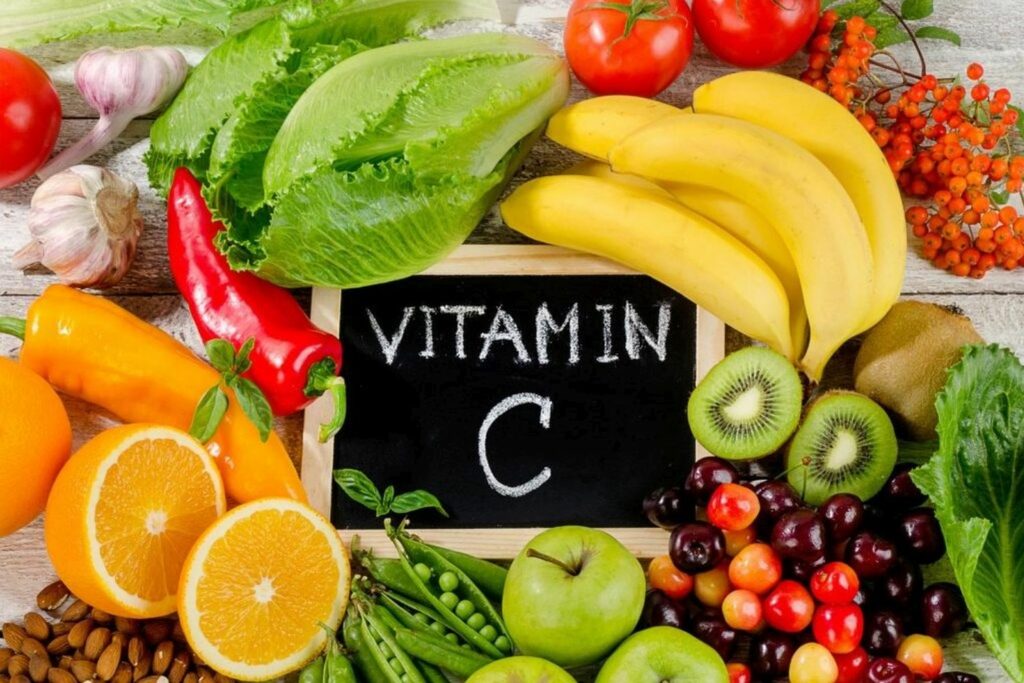
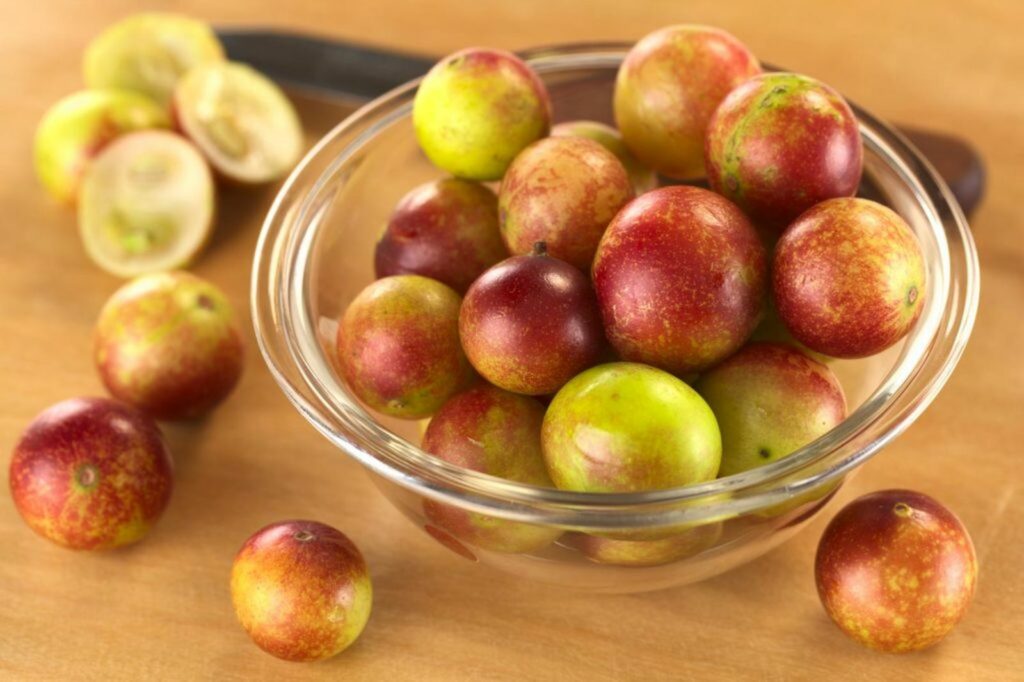
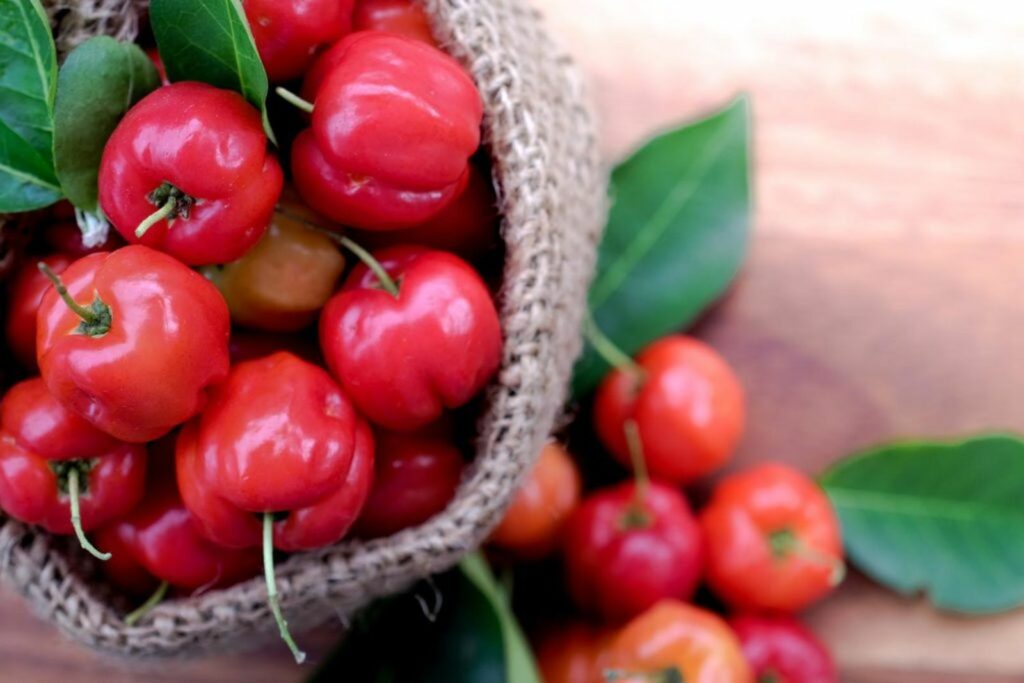
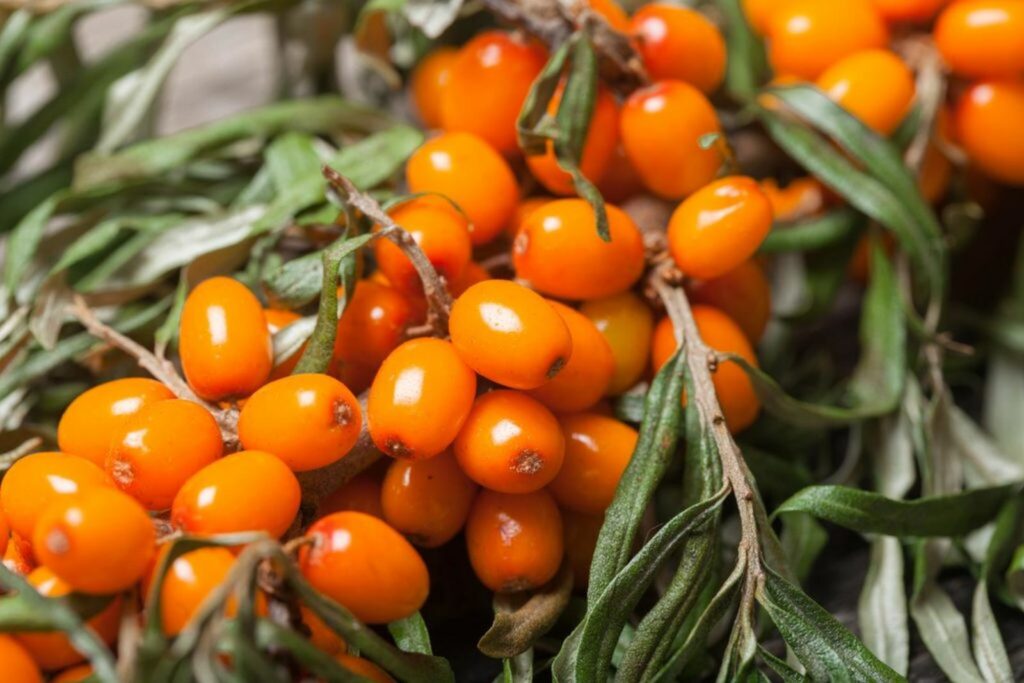
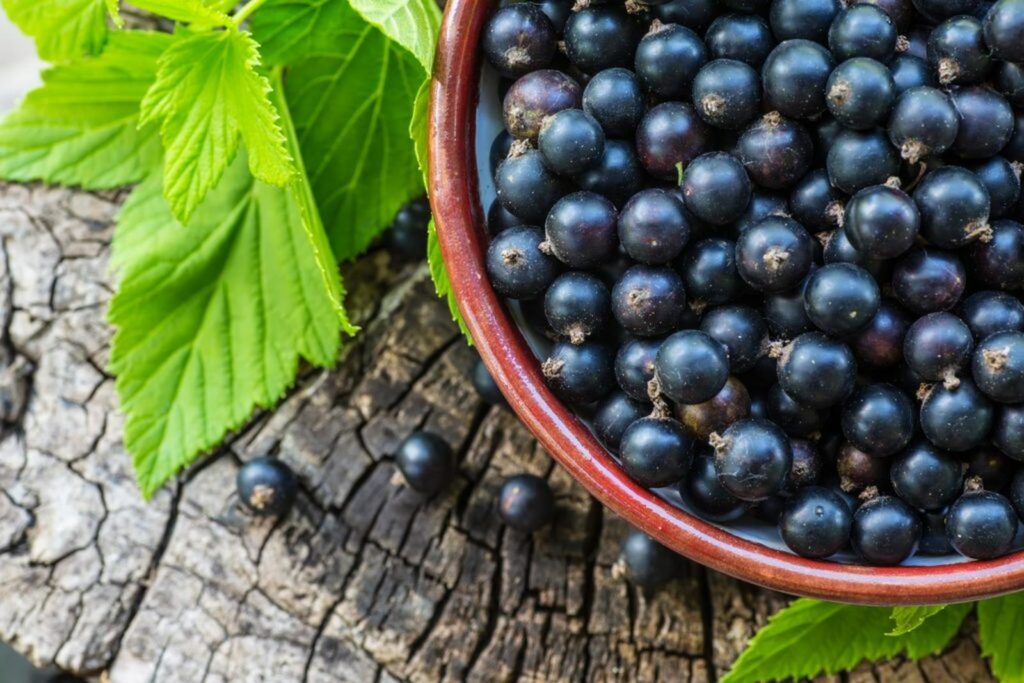
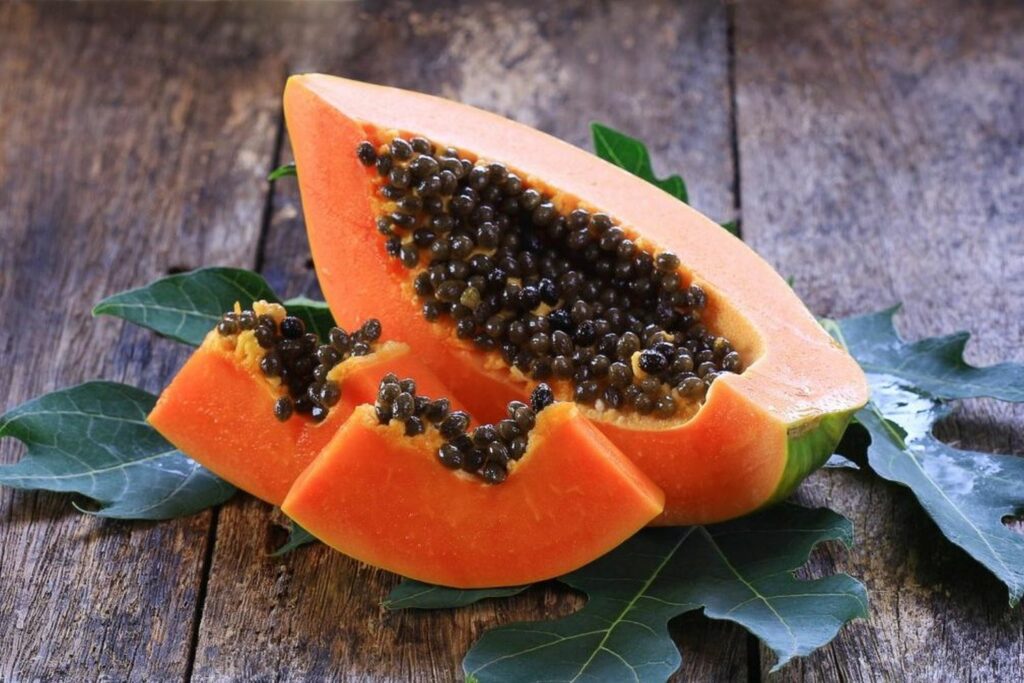
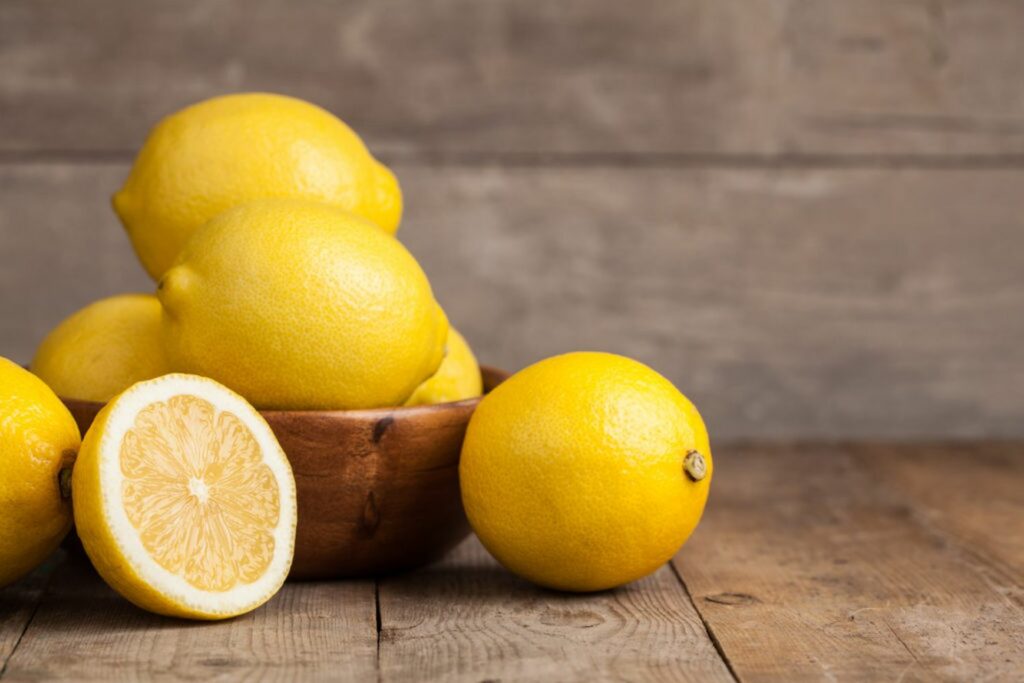
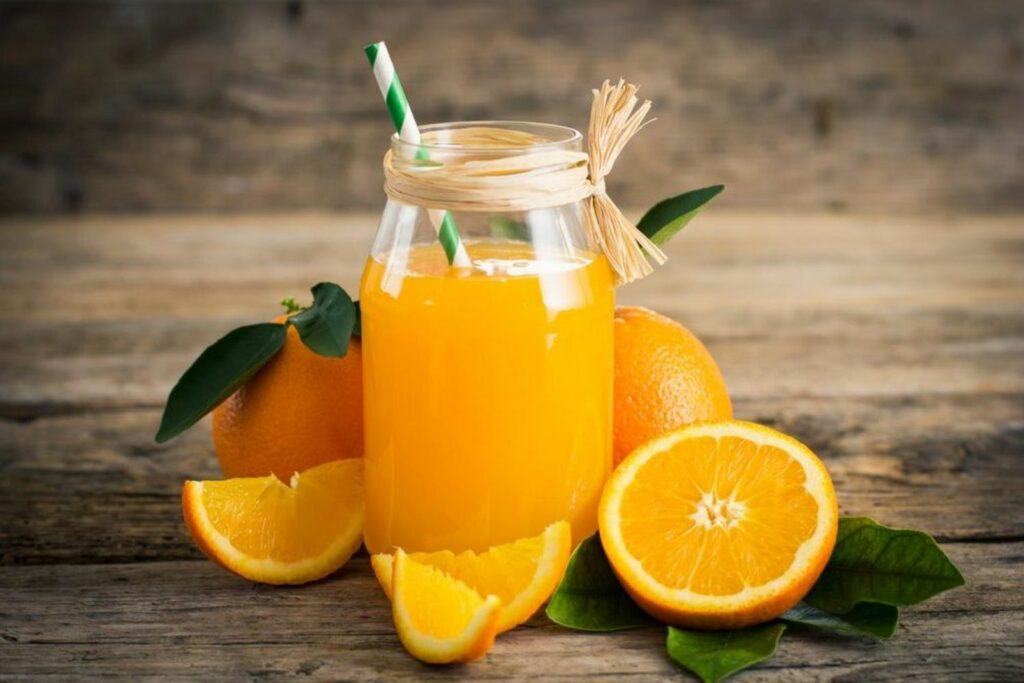
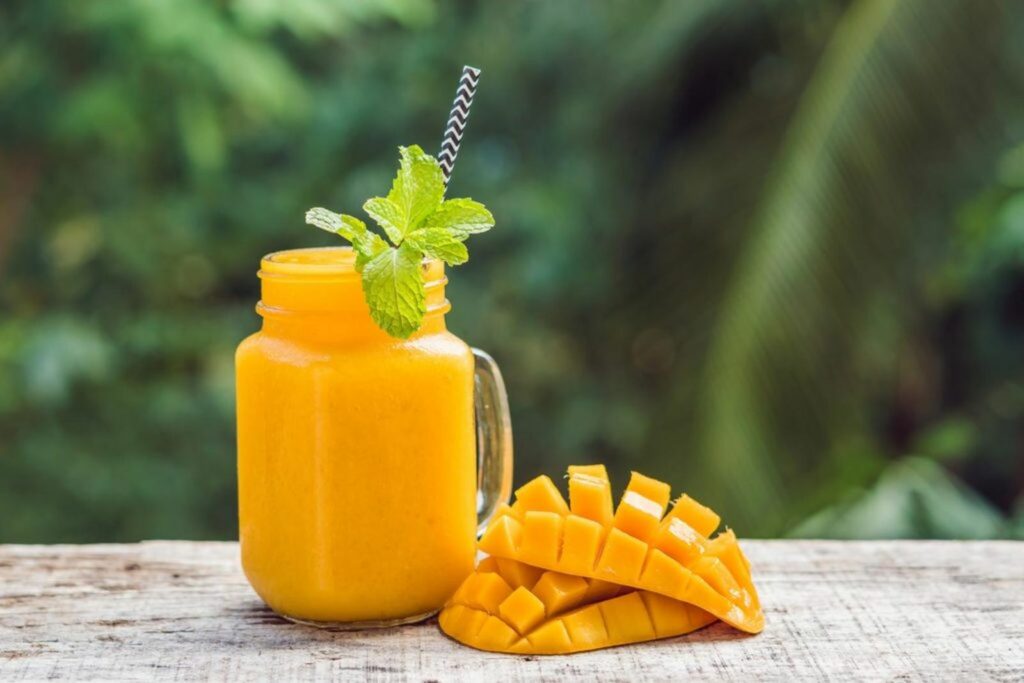
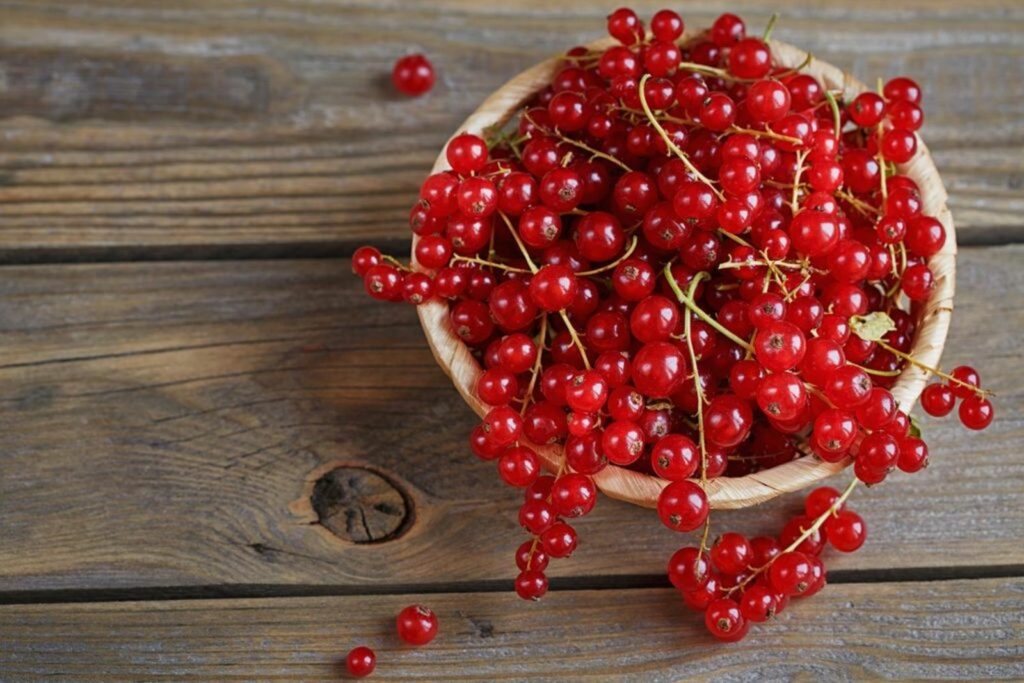
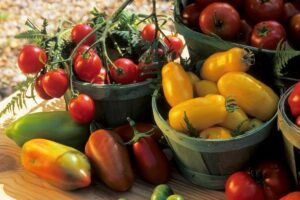
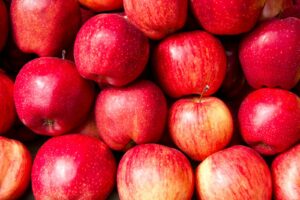
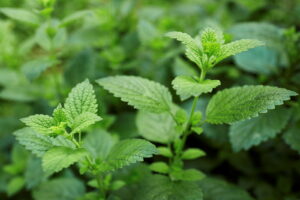














 To the Plantura products
To the Plantura products 

